
College enrollment in the United States has been on a steady decline over the past several years. The number of undergraduates who matriculated at U.S. colleges and universities has fallen every fall for the last five years, declining from 29.5 million in 2011 to 27.4 million in 2015. One deciding factor in the increasingly popular decision not to attend college may the rising cost of tuition.
Over the past five years, the cost of in-state tuition in the United States rose by 13.5% on average, from $13,391 in the 2011-12 school year to $15,201 in the 2016-17 school year. In-state tuition at public, four-year universities rose by 17.7%, and at private, not-for-profit, four-year universities by 16.6%.
Among the primary factors affecting the price of tuition are rising student fees, declining state funding, and increasing enrollment of low-income students. Many of the colleges with the largest five-year tuition hikes are clustered in the South and are often mid-sized technical or religious universities.
To determine the colleges with the largest five-year tuition hikes, 24/7 Wall St. reviewed the latest data from the National Center for Education Statistics. Four-year universities were ranked based on the change in their published in-state tuition from the 2011-12 school year to the 2016-17 school year. 24/7 Wall St. also interviewed Richard Reeves, branch chief for the postsecondary branch of NCES, for insight into where and why college tuition is rising.
Click here to see the colleges with the largest tuition hikes.
Click here to see our detailed findings and methodology.
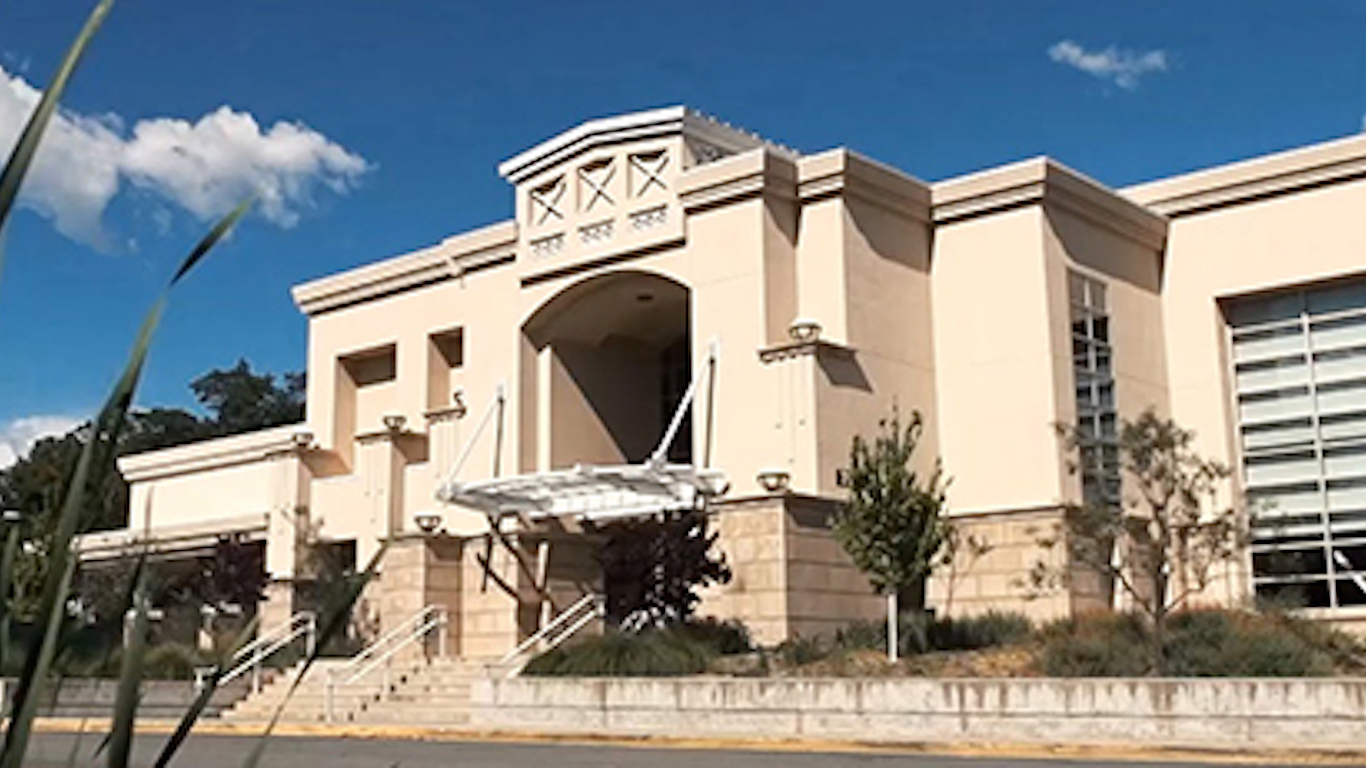
50. Shasta College, California
> 5-year tuition increase: 44.3%
> Tuition and fees: $1,183
> Annual net price: $7,537
> Total student population: 12,300
[in-text-ad]
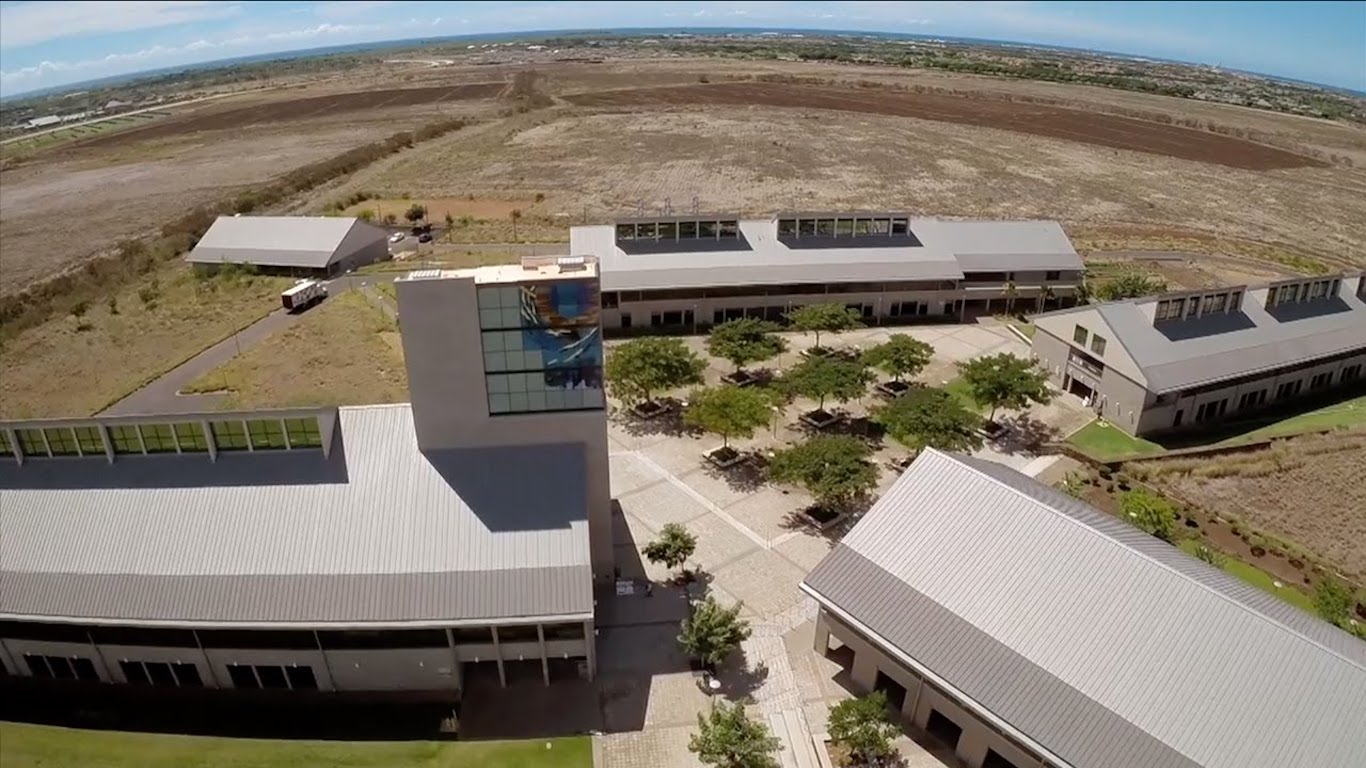
49. University of Hawaii-West Oahu, Hawaii
> 5-year tuition increase: 44.6%
> Tuition and fees: $7,440
> Annual net price: $8,522
> Total student population: 3,416
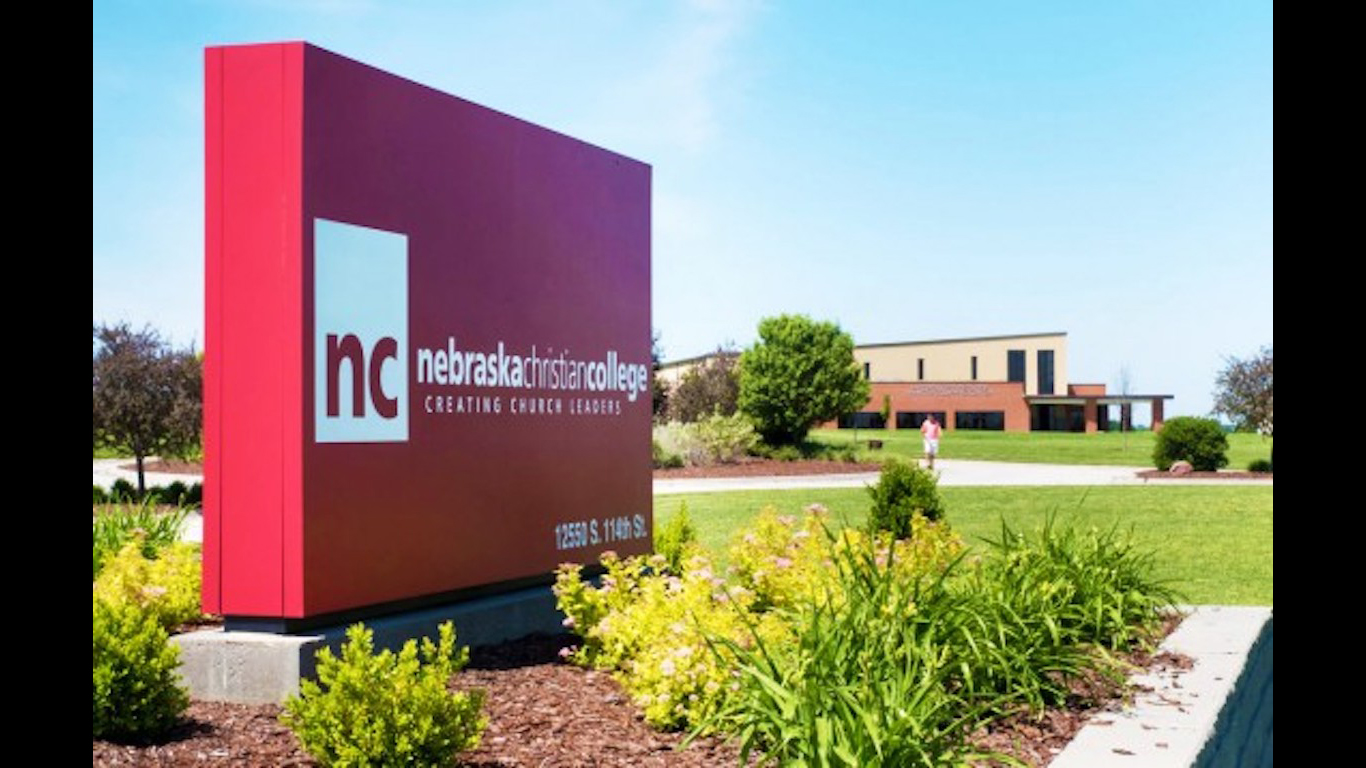
48. Nebraska Christian College of Hope International University, Nebraska
> 5-year tuition increase: 44.6%
> Tuition and fees: $16,200
> Annual net price: $21,287
> Total student population: 146
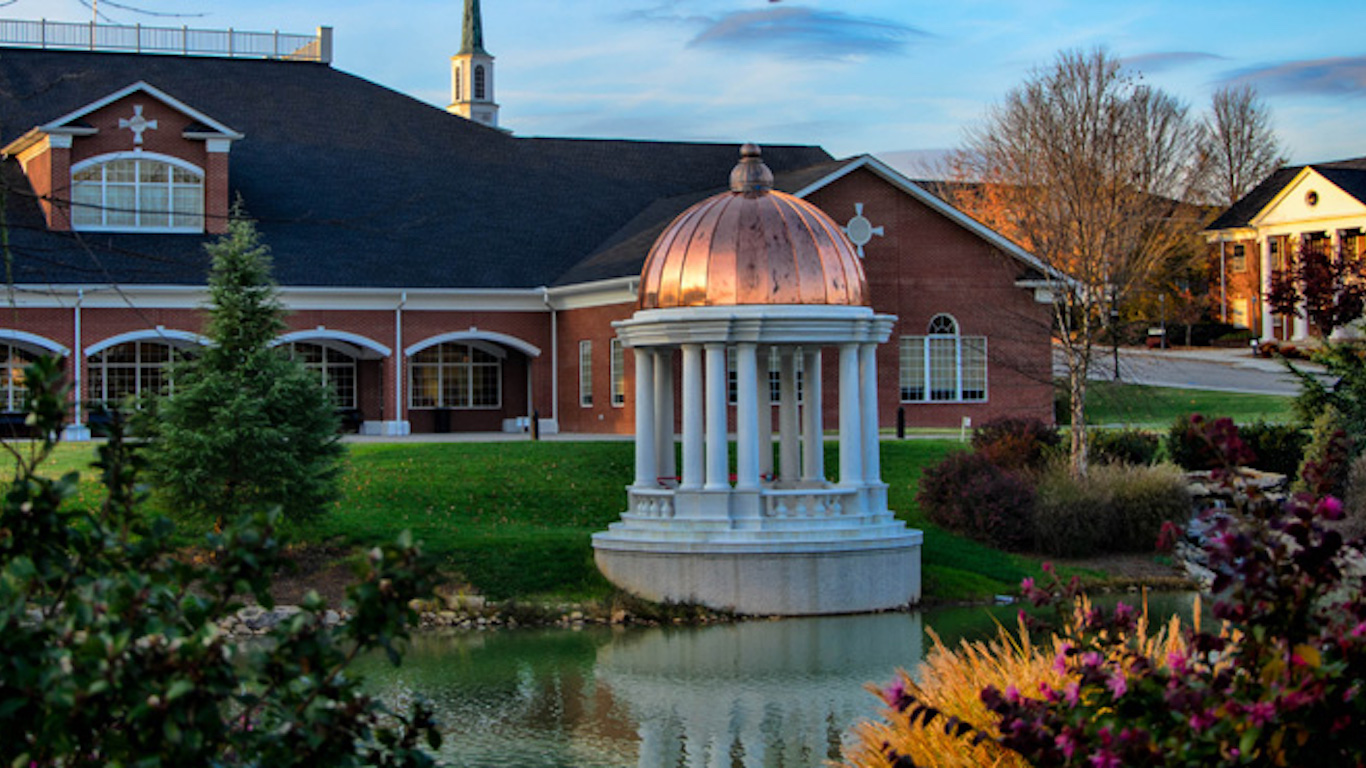
47. Johnson University, Tennessee
> 5-year tuition increase: 44.9%
> Tuition and fees: $13,950
> Annual net price: $16,368
> Total student population: 991
[in-text-ad-2]
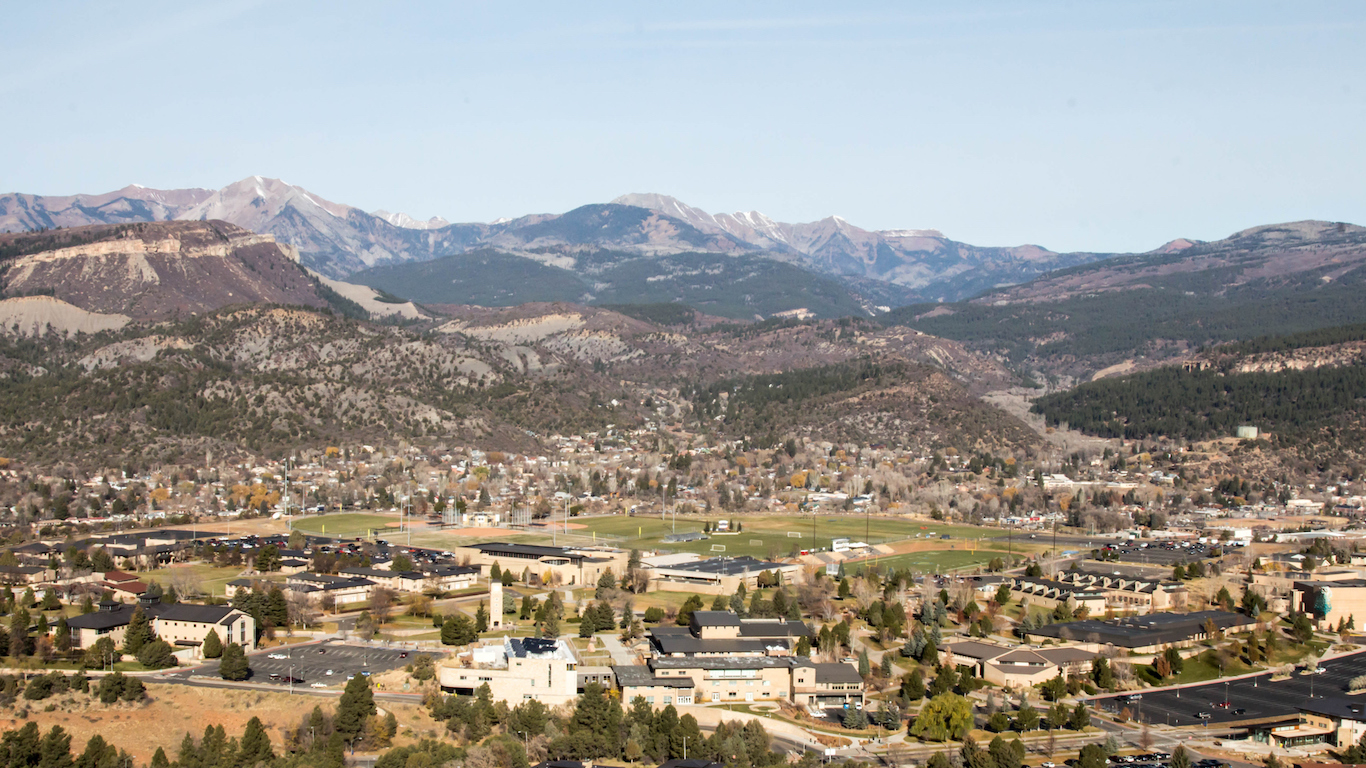
46. Fort Lewis College, Colorado
> 5-year tuition increase: 44.9%
> Tuition and fees: $8,104
> Annual net price: $17,918
> Total student population: 4,086
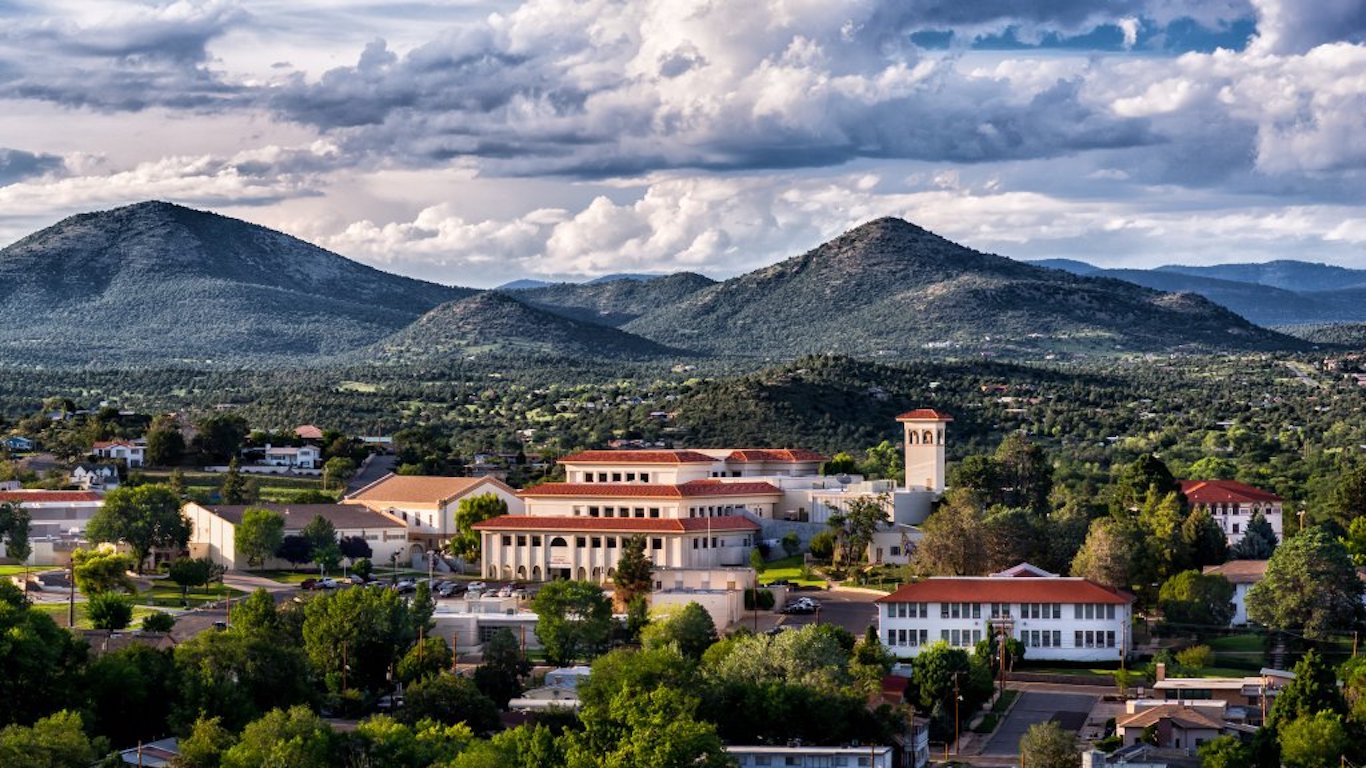
45. Western New Mexico University, New Mexico
> 5-year tuition increase: 46.6%
> Tuition and fees: $5,906
> Annual net price: $10,605
> Total student population: 3,263
[in-text-ad]
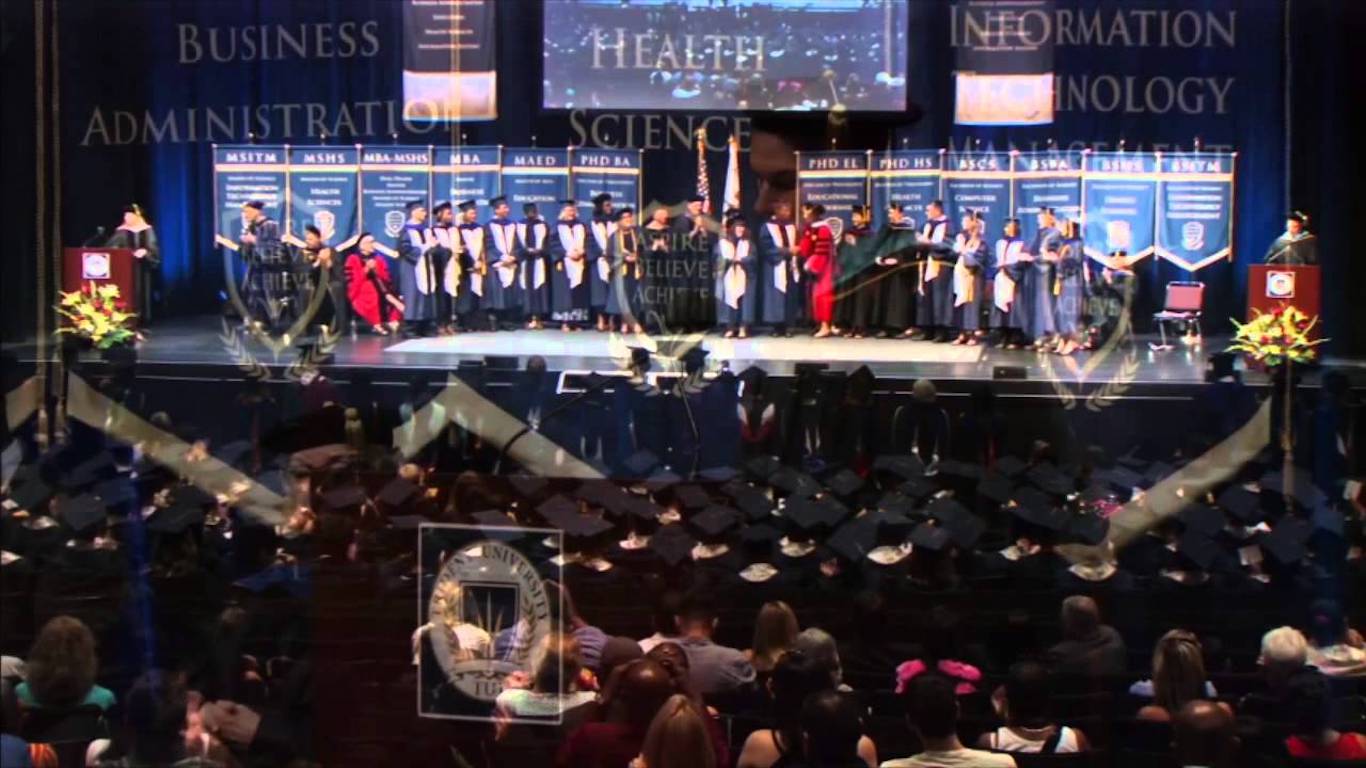
44. Trident University International, California
> 5-year tuition increase: 47.1%
> Tuition and fees: $9,000
> Annual net price: $13,175
> Total student population: 7,124
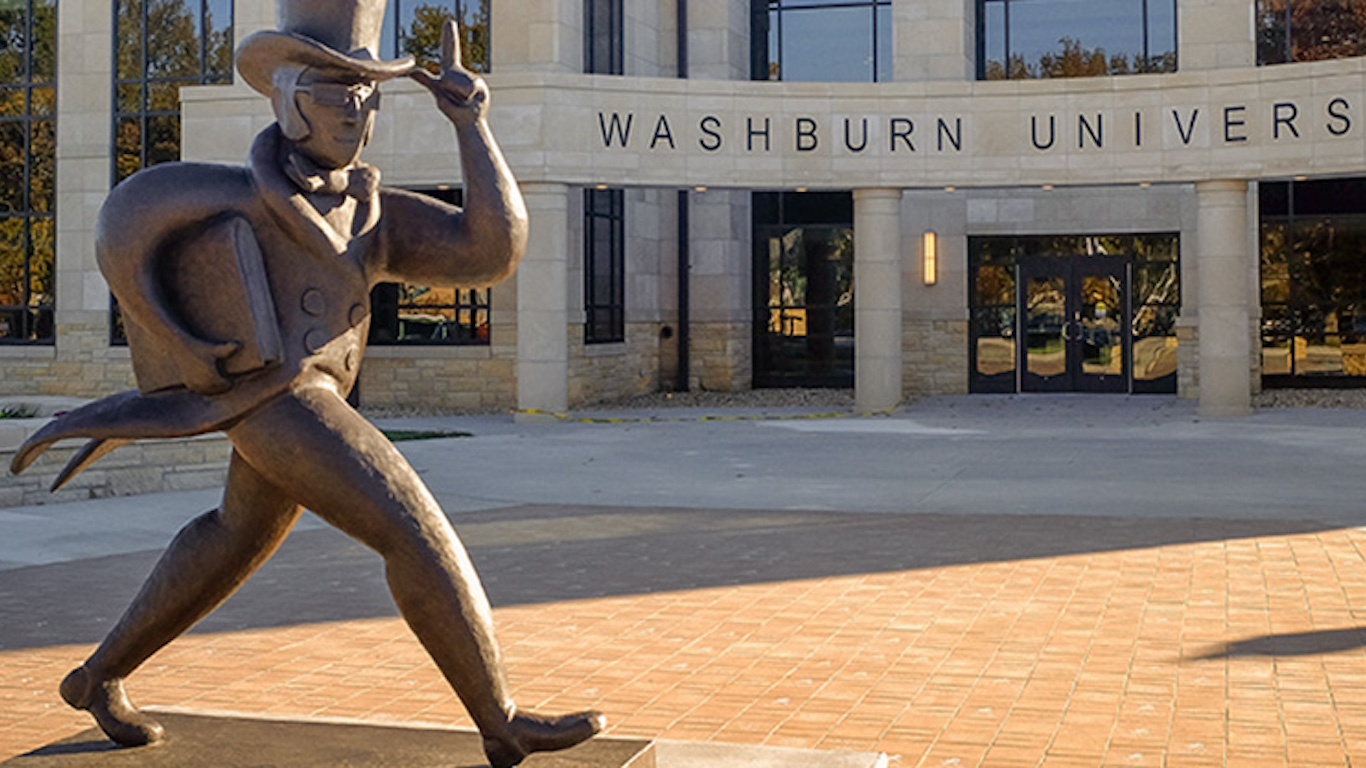
43. Washburn University, Kansas
> 5-year tuition increase: 47.1%
> Tuition and fees: $7,754
> Annual net price: $11,604
> Total student population: 6,711

42. The University of Texas Rio Grande Valley, Texas
> 5-year tuition increase: 47.8%
> Tuition and fees: $7,438
> Annual net price: $4,432
> Total student population: 27,811
[in-text-ad-2]
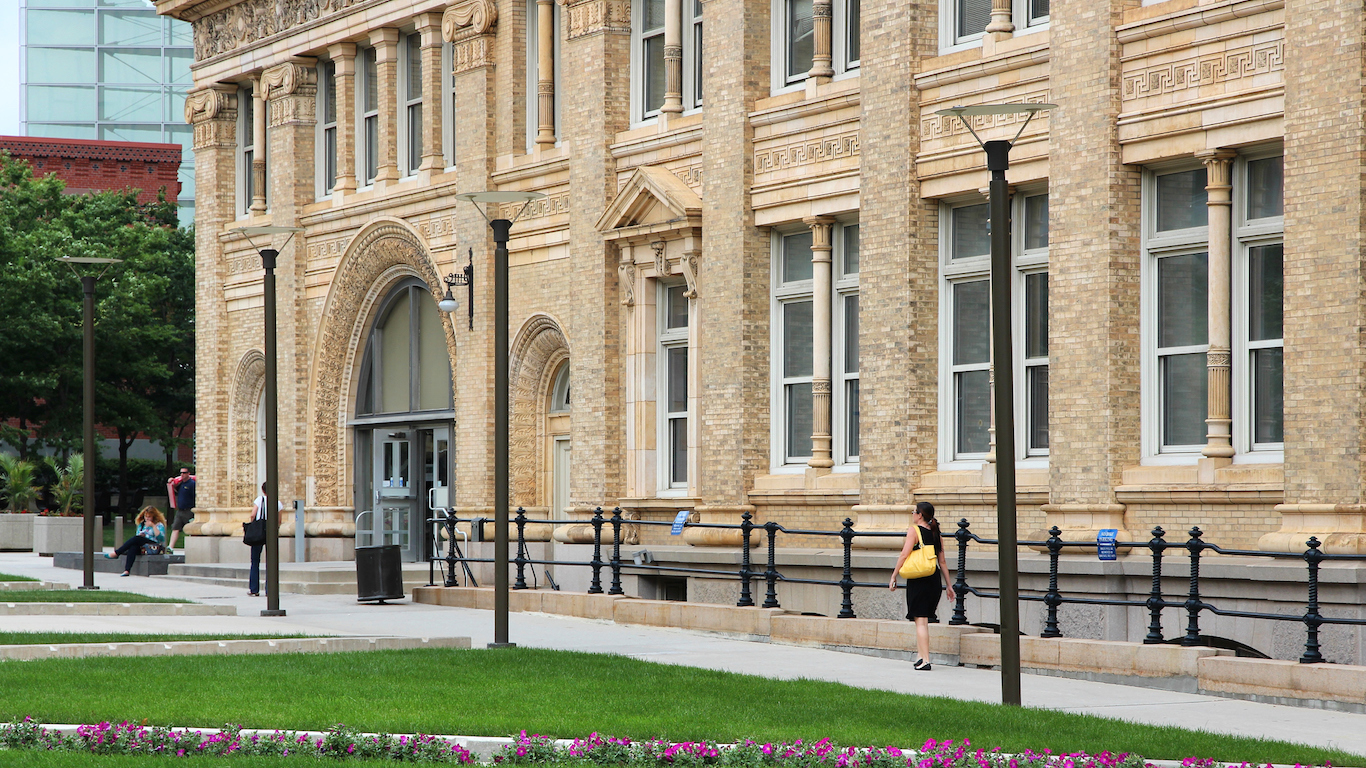
41. Drexel University, Pennsylvania
> 5-year tuition increase: 47.9%
> Tuition and fees: $51,030
> Annual net price: $39,021
> Total student population: 18,721
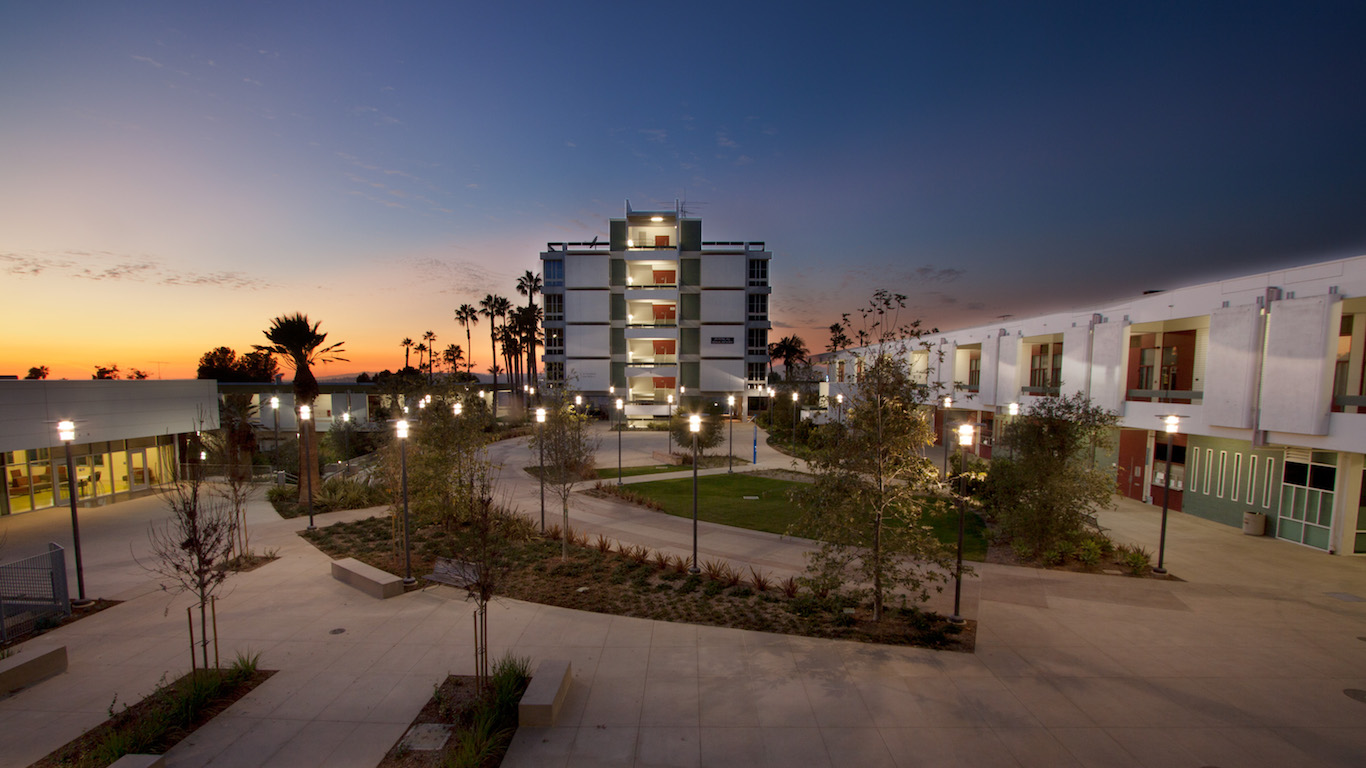
40. Rio Hondo College, California
> 5-year tuition increase: 48.3%
> Tuition and fees: $1,360
> Annual net price: $7,420
> Total student population: 28,014
[in-text-ad]
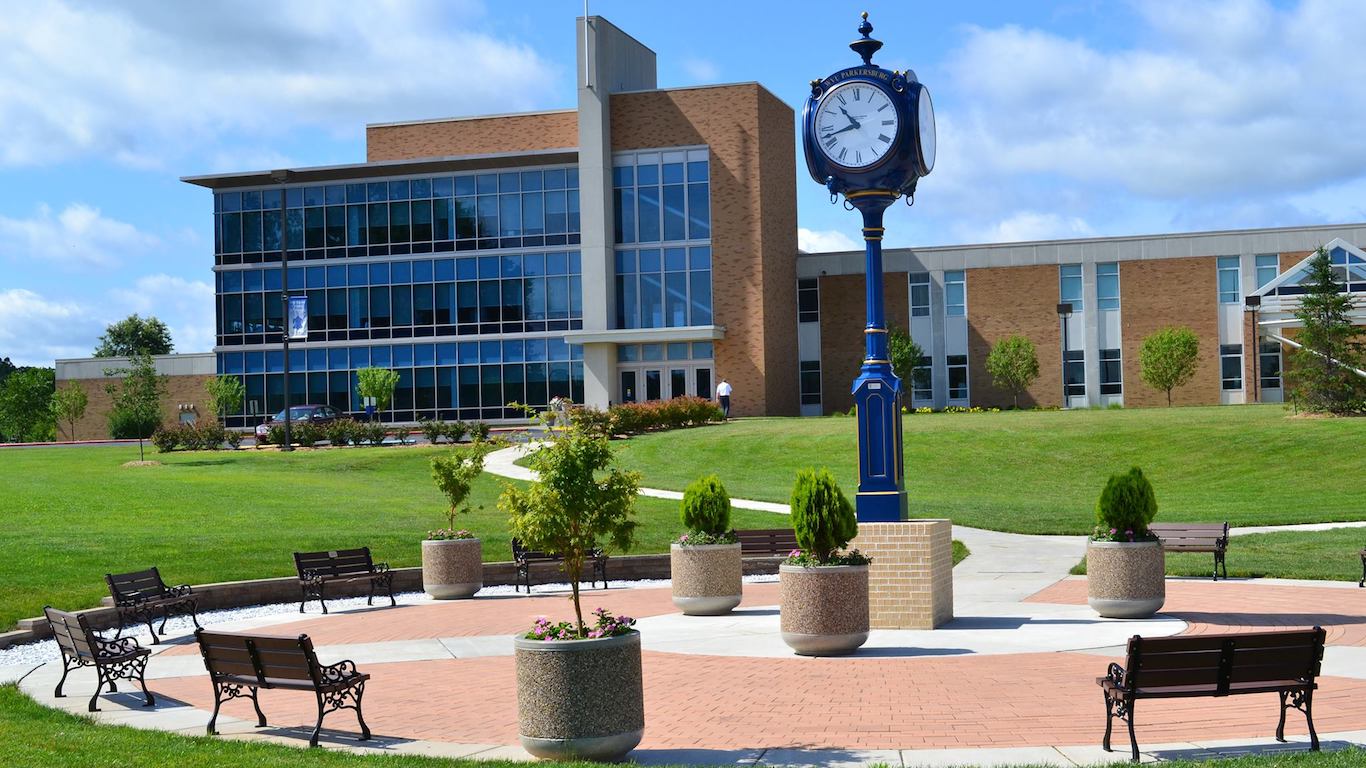
39. West Virginia University at Parkersburg, West Virginia
> 5-year tuition increase: 49.2%
> Tuition and fees: $3,384
> Annual net price: $8,121
> Total student population: 3,349
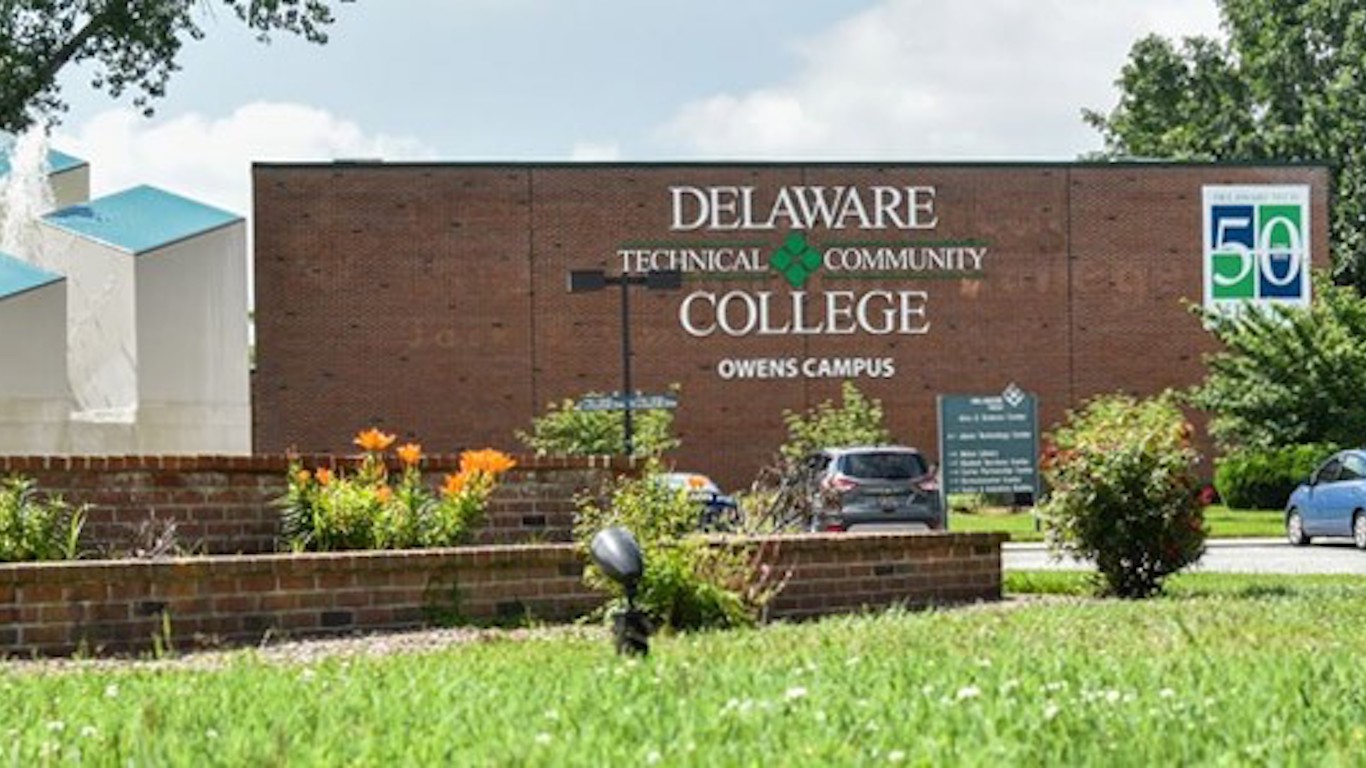
38. Delaware Technical Community College-Terry, Delaware
> 5-year tuition increase: 49.3%
> Tuition and fees: $4,607
> Annual net price: $7,003
> Total student population: 18,957
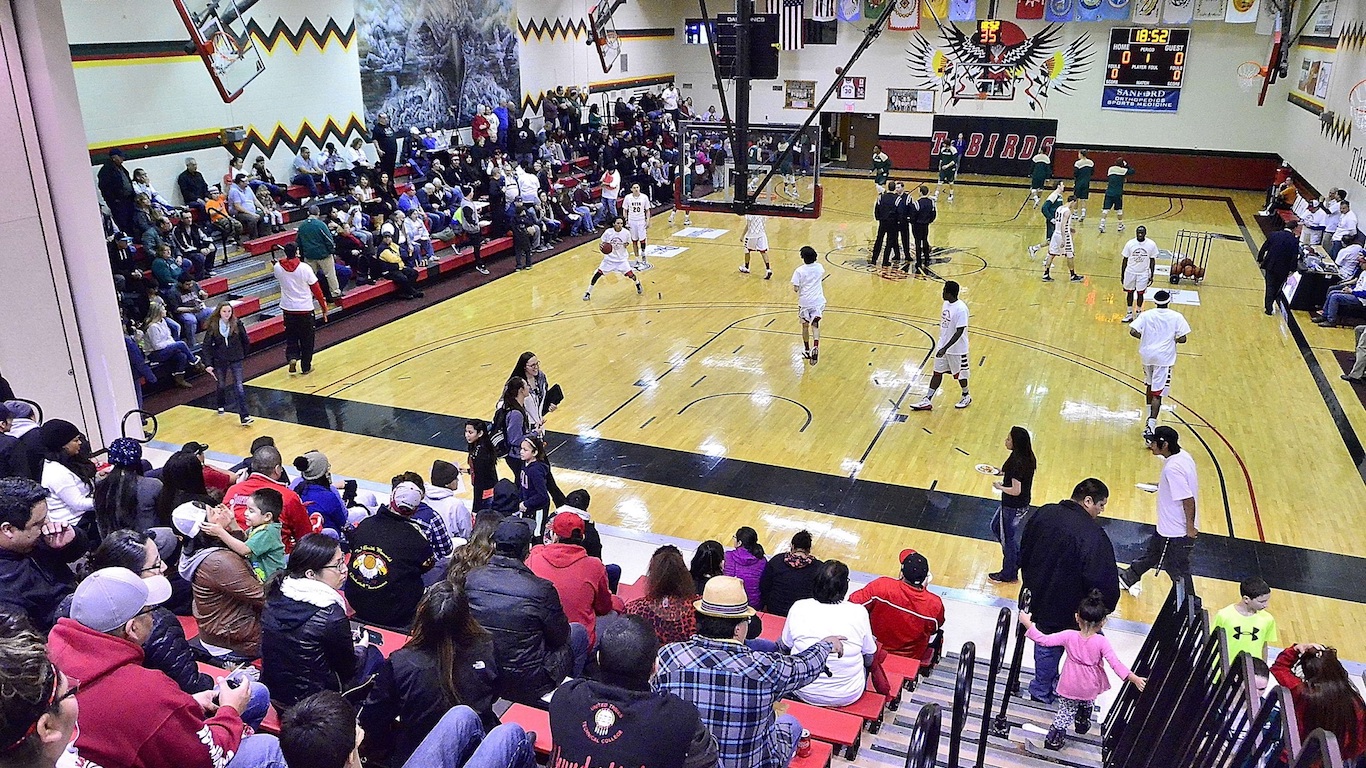
37. United Tribes Technical College, North Dakota
> 5-year tuition increase: 49.9%
> Tuition and fees: $5,757
> Annual net price: $6,813
> Total student population: 547
[in-text-ad-2]
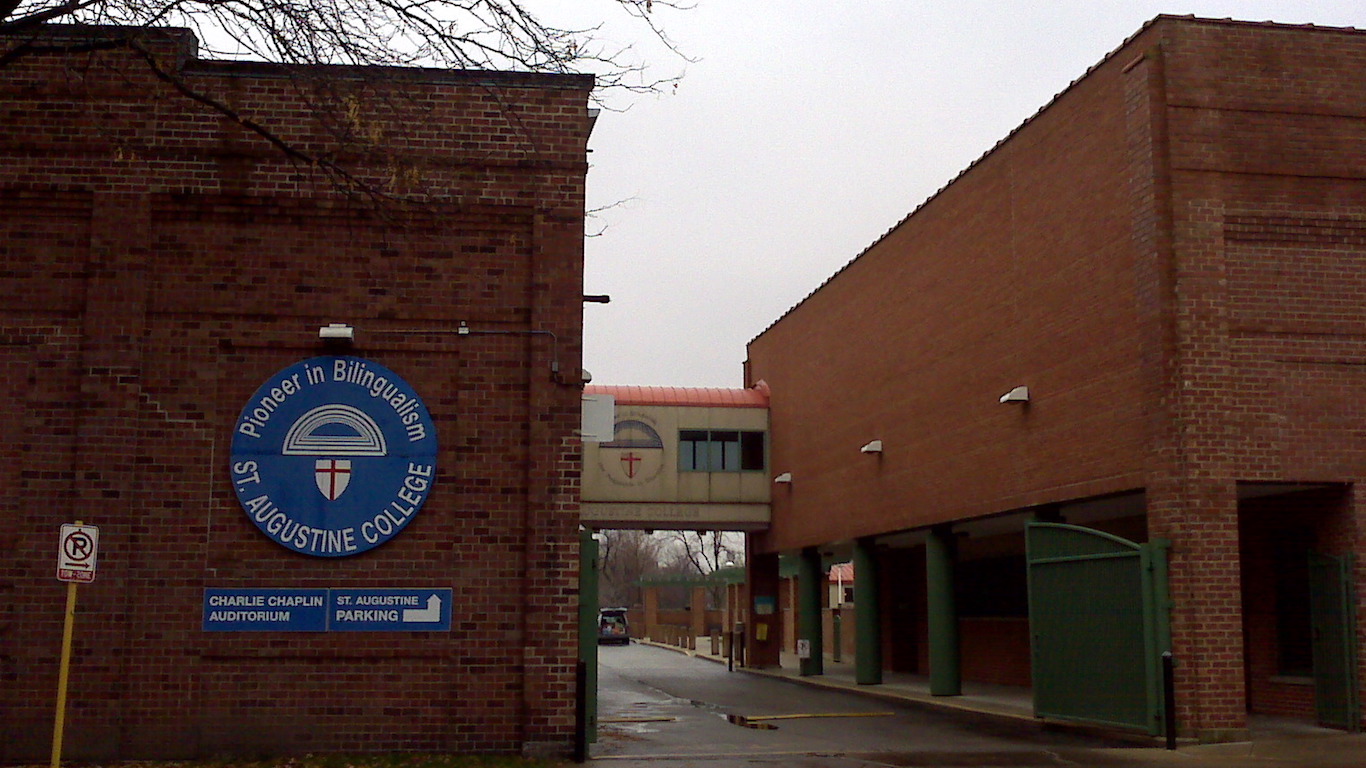
36. Saint Augustine College, Illinois
> 5-year tuition increase: 50.7%
> Tuition and fees: $13,200
> Annual net price: $6,889
> Total student population: 2,052

35. Grambling State University, Louisiana
> 5-year tuition increase: 50.9%
> Tuition and fees: $7,371
> Annual net price: $17,239
> Total student population: 4,202
[in-text-ad]
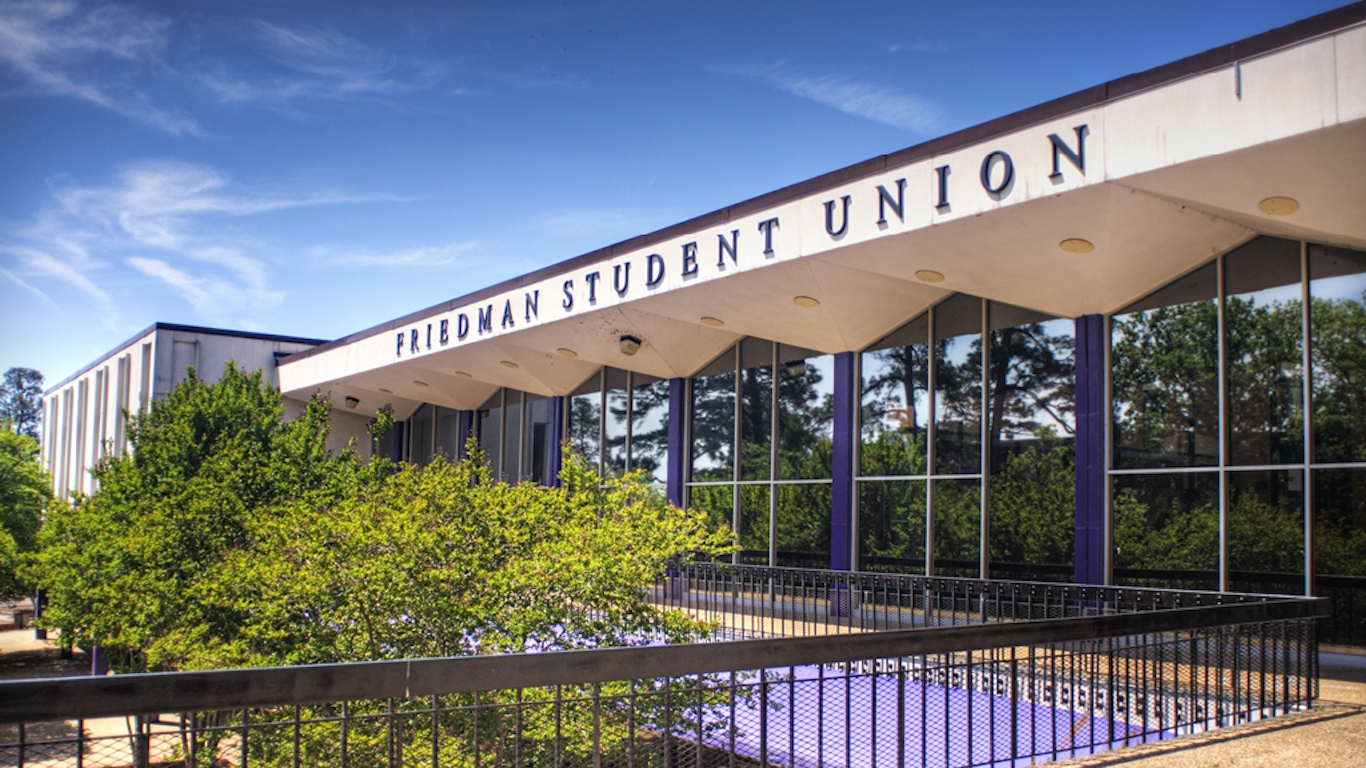
34. Northwestern State University of Louisiana, Louisiana
> 5-year tuition increase: 50.9%
> Tuition and fees: $7,620
> Annual net price: $11,567
> Total student population: 10,199
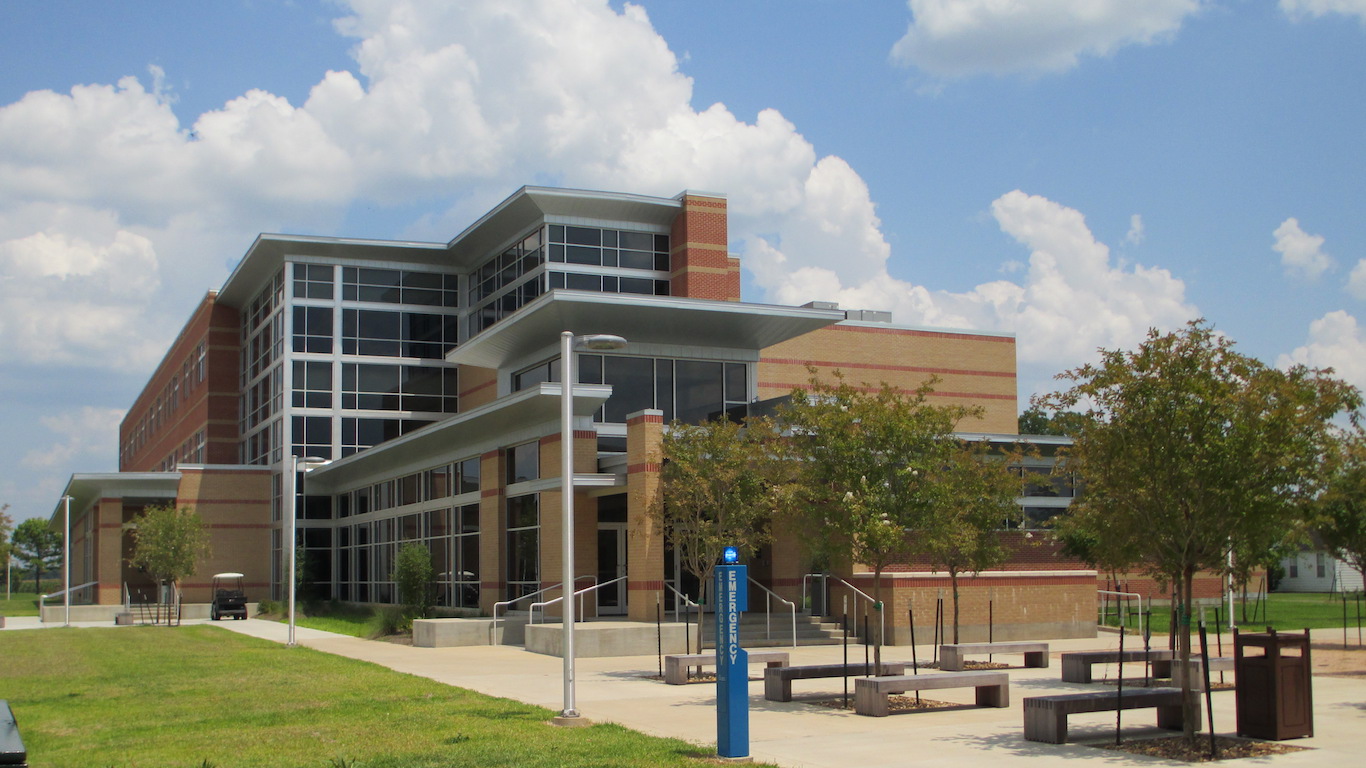
33. Louisiana State University-Alexandria, Louisiana
> 5-year tuition increase: 51.5%
> Tuition and fees: $6,668
> Annual net price: $7,981
> Total student population: 3,768
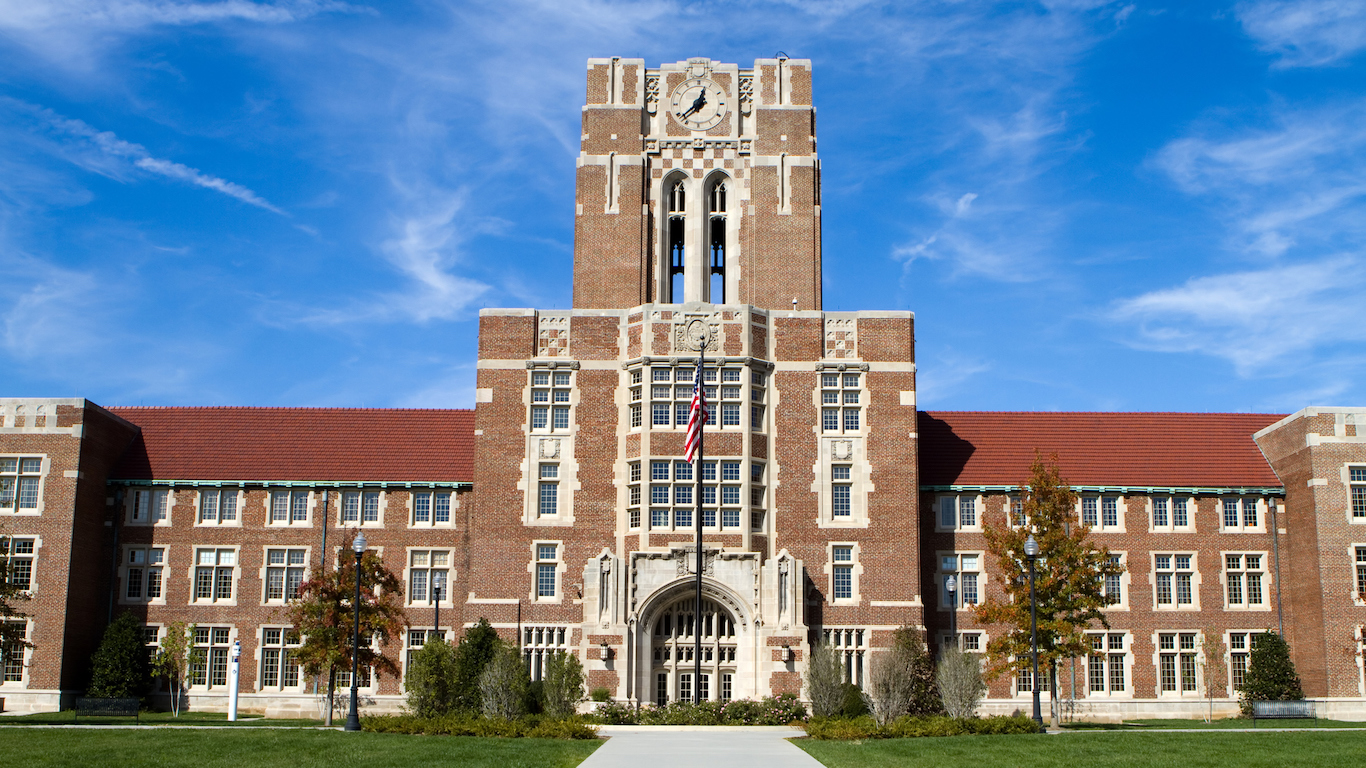
32. The University of Tennessee-Knoxville, Tennessee
> 5-year tuition increase: 51.5%
> Tuition and fees: $12,724
> Annual net price: $20,780
> Total student population: 23,677
[in-text-ad-2]

31. Colorado State University-Pueblo, Colorado
> 5-year tuition increase: 51.8%
> Tuition and fees: $9,519
> Annual net price: $12,887
> Total student population: 6,683
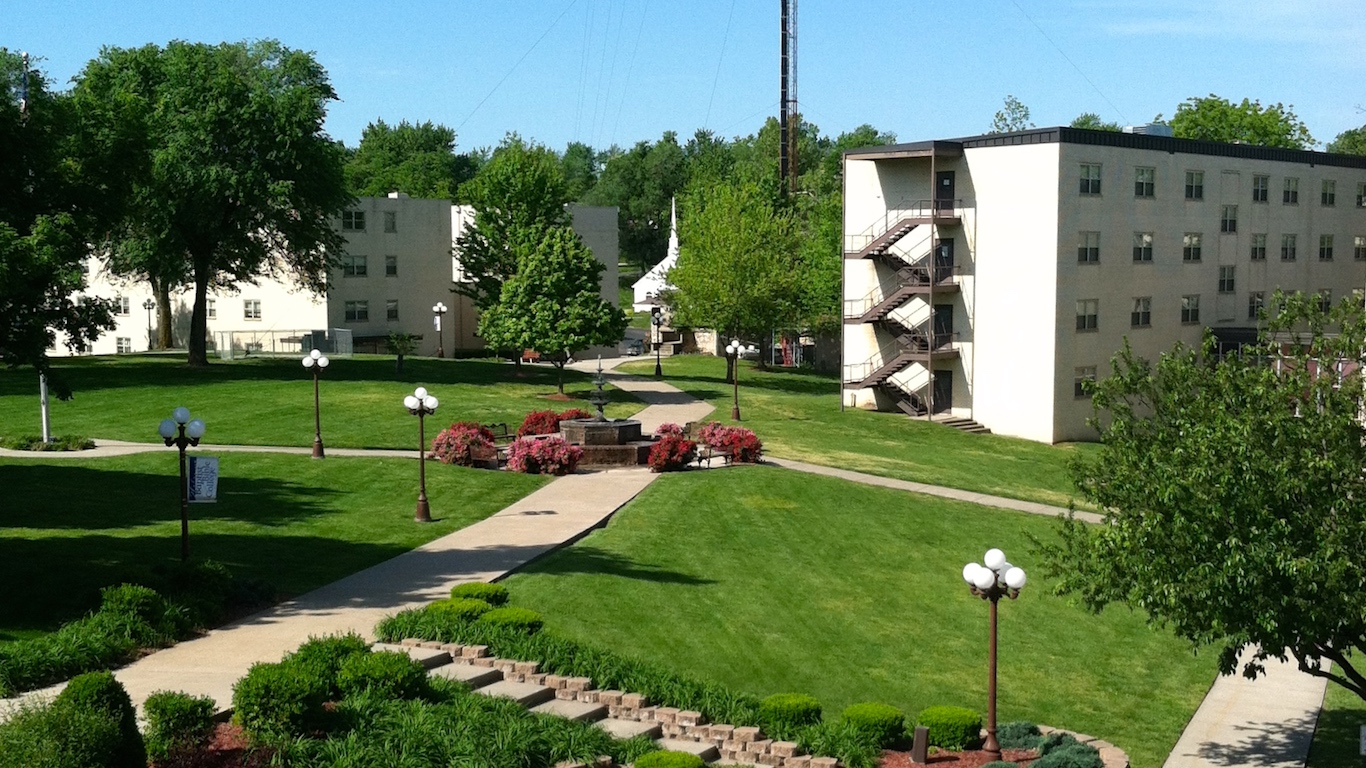
30. Baptist Bible College, Missouri
> 5-year tuition increase: 52.3%
> Tuition and fees: $10,536
> Annual net price: $13,894
> Total student population: 370
[in-text-ad]

29. Arlington Baptist College, Texas
> 5-year tuition increase: 52.5%
> Tuition and fees: $11,500
> Annual net price: $14,803
> Total student population: 238

28. Institute of American Indian and Alaska Native Culture and Arts Development, New Mexico
> 5-year tuition increase: 52.6%
> Tuition and fees: $4,700
> Annual net price: $13,067
> Total student population: 743
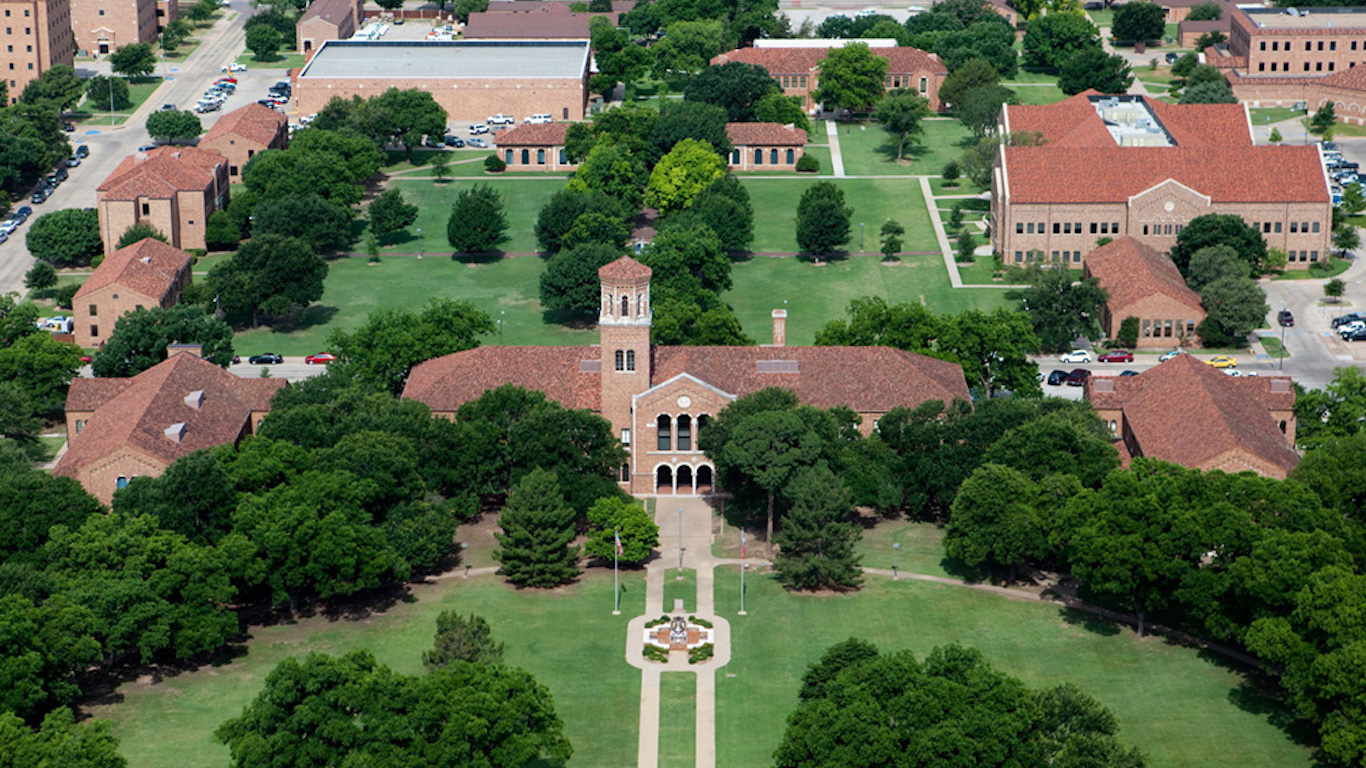
27. Midwestern State University, Texas
> 5-year tuition increase: 52.6%
> Tuition and fees: $8,620
> Annual net price: $9,777
> Total student population: 6,039
[in-text-ad-2]
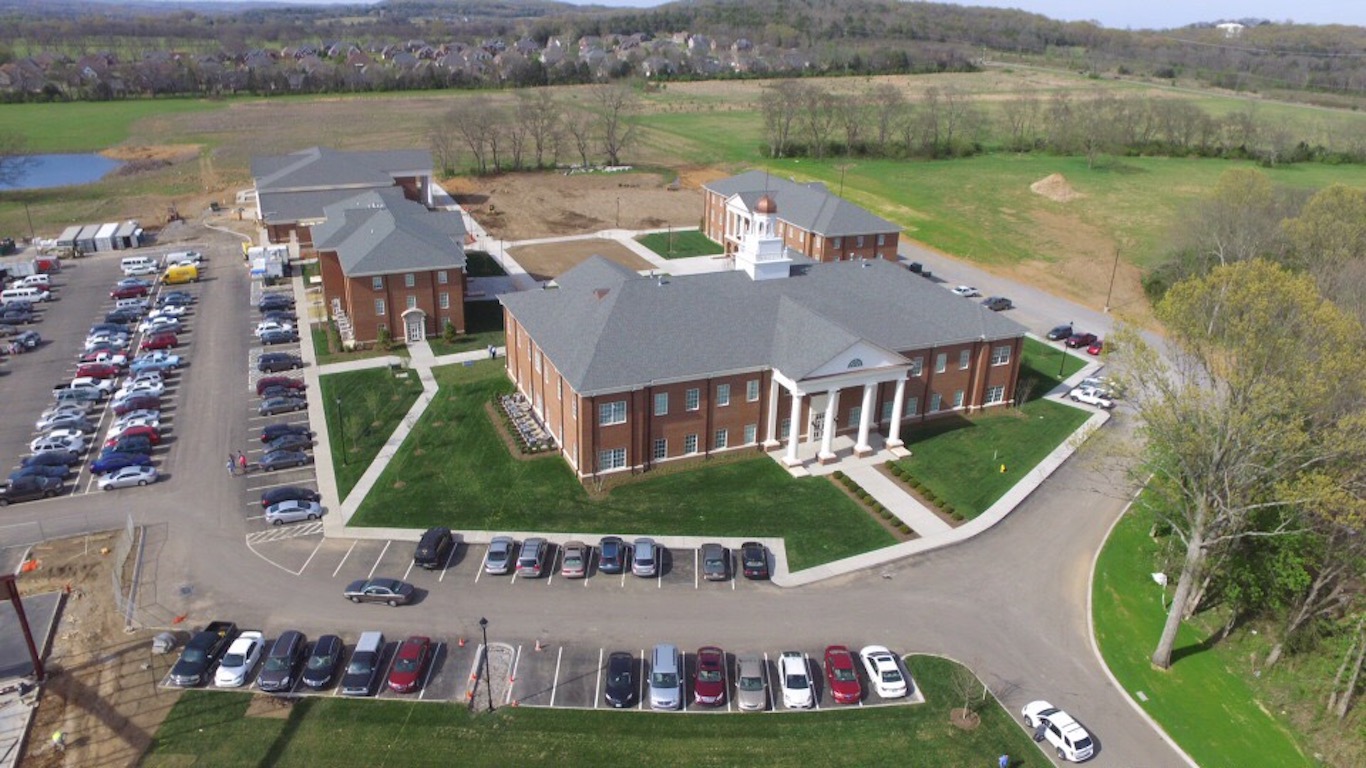
26. Welch College, Tennessee
> 5-year tuition increase: 53.9%
> Tuition and fees: $17,920
> Annual net price: $20,236
> Total student population: 358
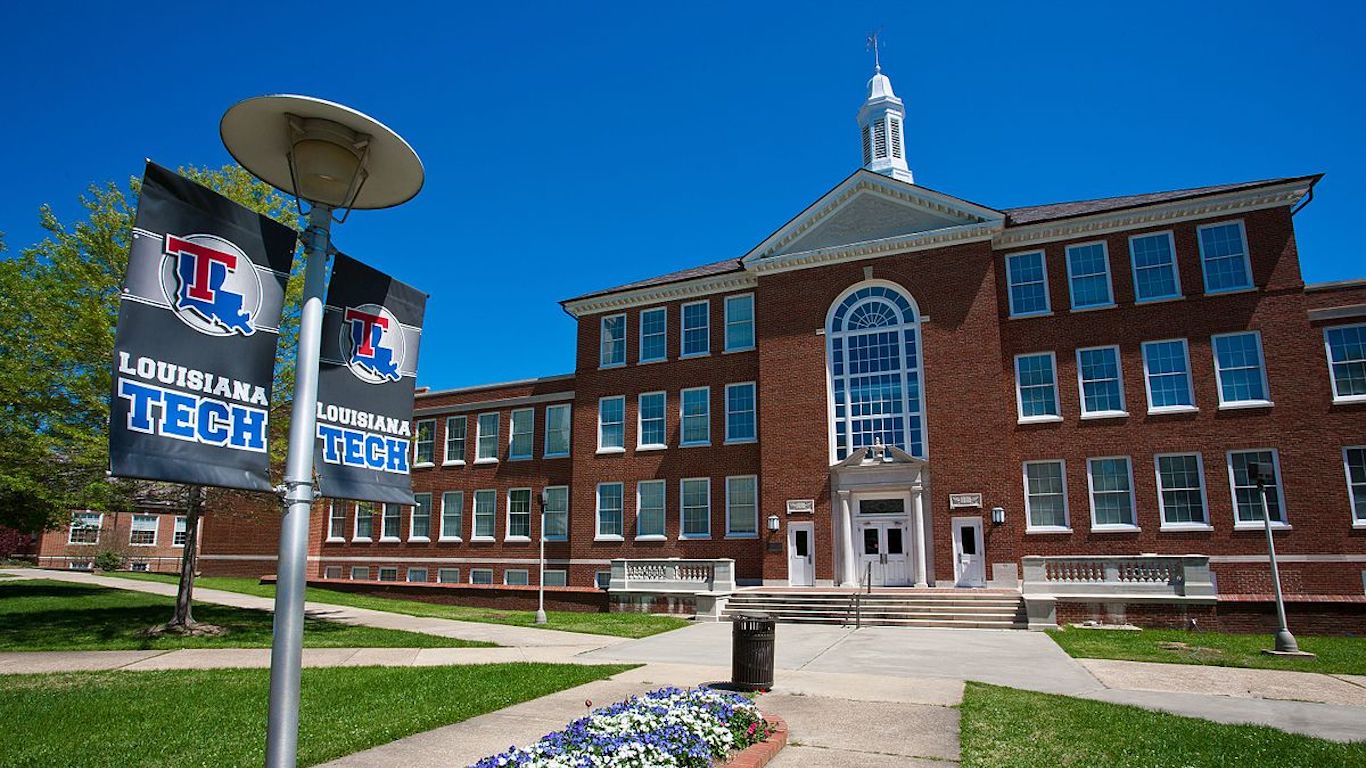
25. Louisiana Tech University, Louisiana
> 5-year tuition increase: 54.6%
> Tuition and fees: $9,117
> Annual net price: $9,497
> Total student population: 12,174
[in-text-ad]
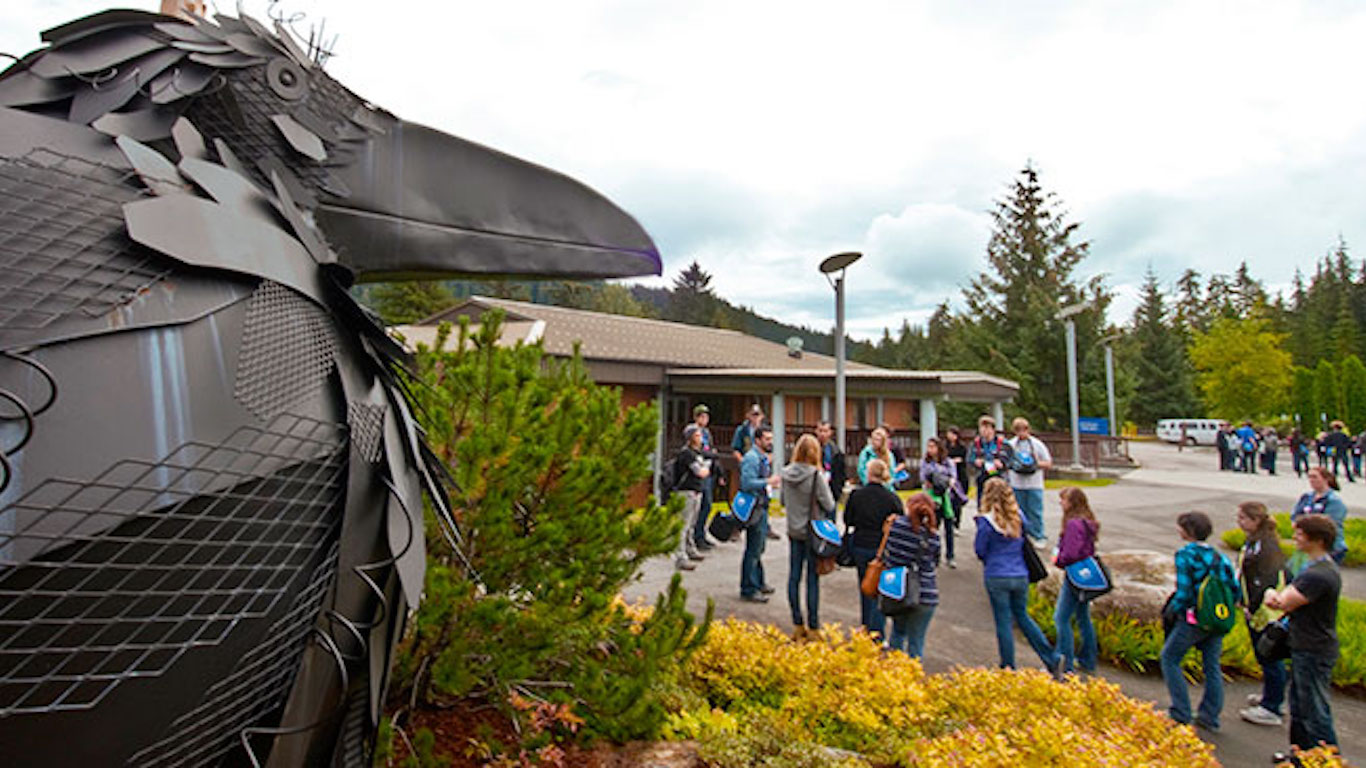
24. University of Alaska Southeast, Alaska
> 5-year tuition increase: 56.4%
> Tuition and fees: $8,415
> Annual net price: $8,719
> Total student population: 4,830
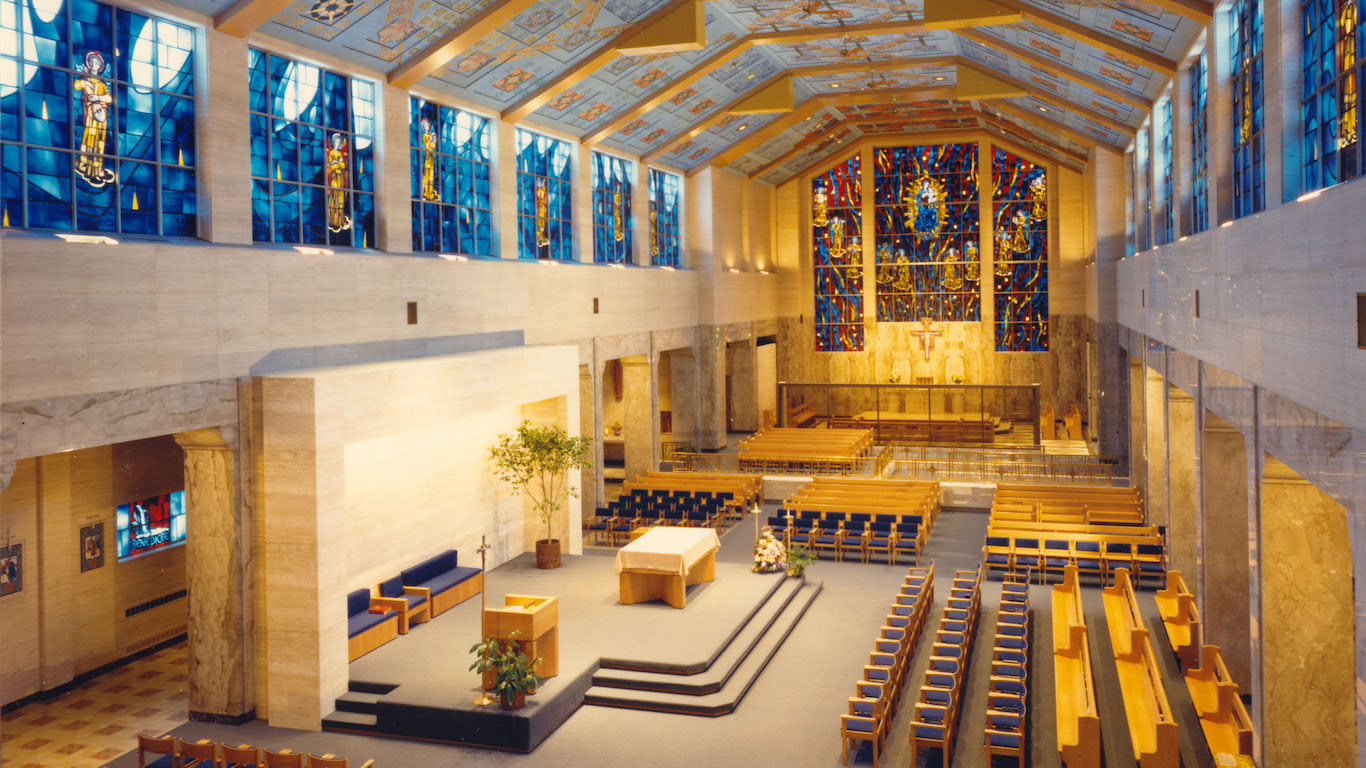
23. Lourdes University, Ohio
> 5-year tuition increase: 56.5%
> Tuition and fees: $20,620
> Annual net price: $19,635
> Total student population: 1,348
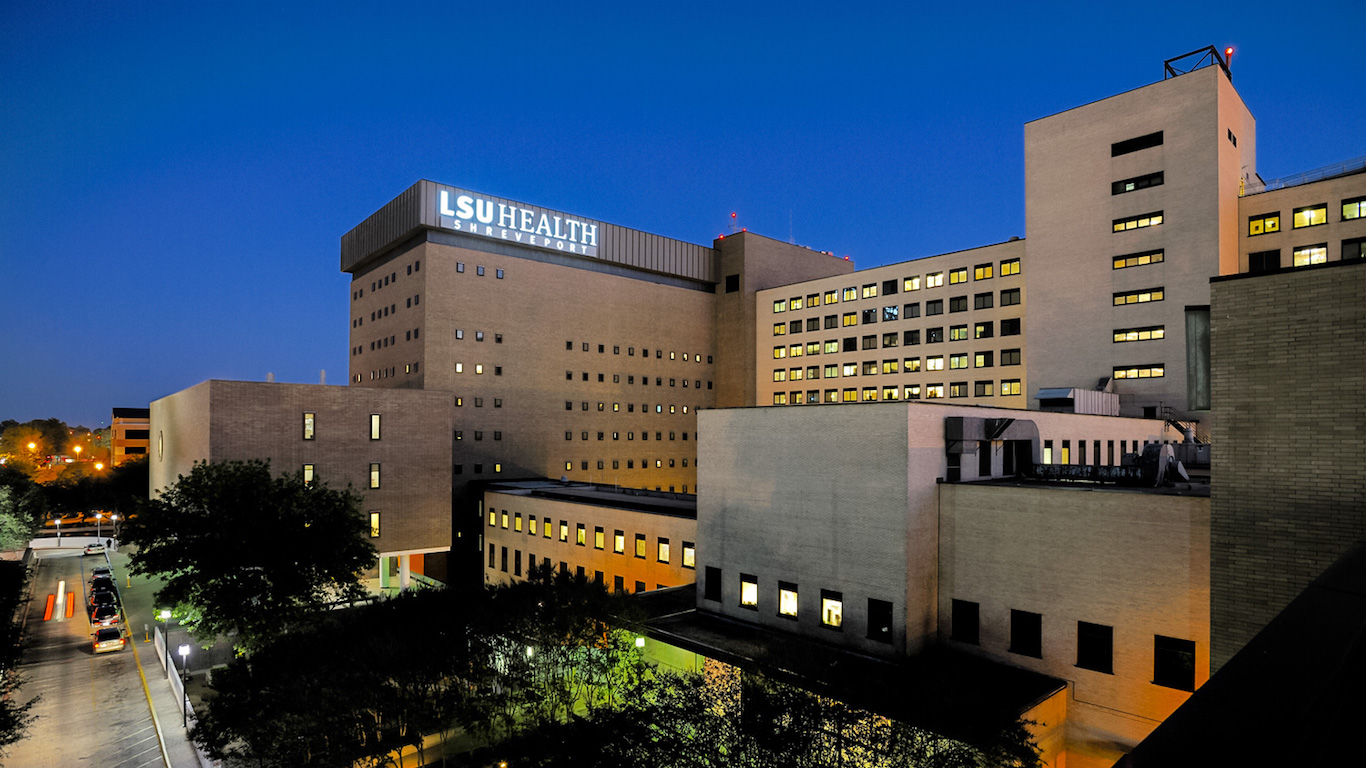
22. Louisiana State University-Shreveport, Louisiana
> 5-year tuition increase: 59.0%
> Tuition and fees: $7,146
> Annual net price: $8,274
> Total student population: 3,466
[in-text-ad-2]
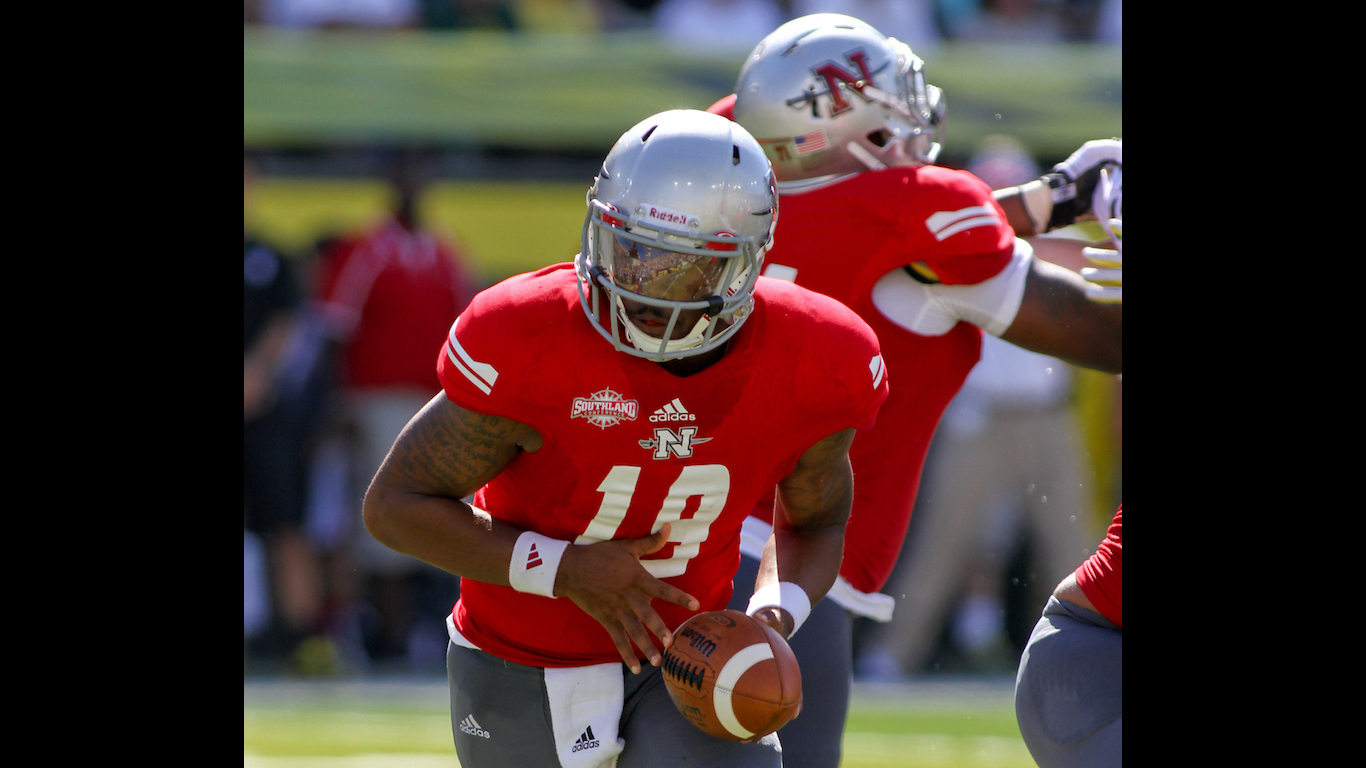
21. Nicholls State University, Louisiana
> 5-year tuition increase: 61.3%
> Tuition and fees: $7,641
> Annual net price: $10,169
> Total student population: 6,454

20. Northern New Mexico College, New Mexico
> 5-year tuition increase: 61.6%
> Tuition and fees: $4,560
> Annual net price: $6,271
> Total student population: 1,510
[in-text-ad]
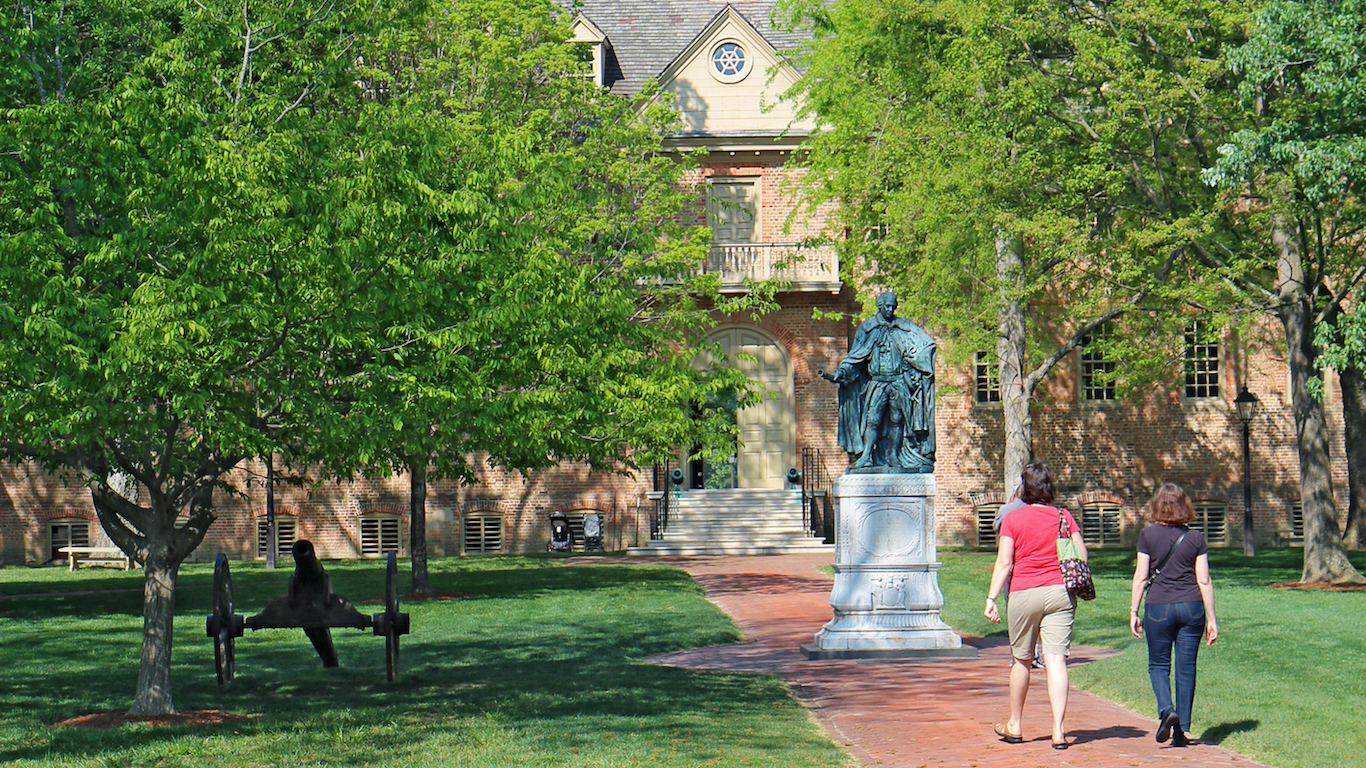
19. College of William and Mary, Virginia
> 5-year tuition increase: 61.7%
> Tuition and fees: $21,234
> Annual net price: $16,734
> Total student population: 6,890
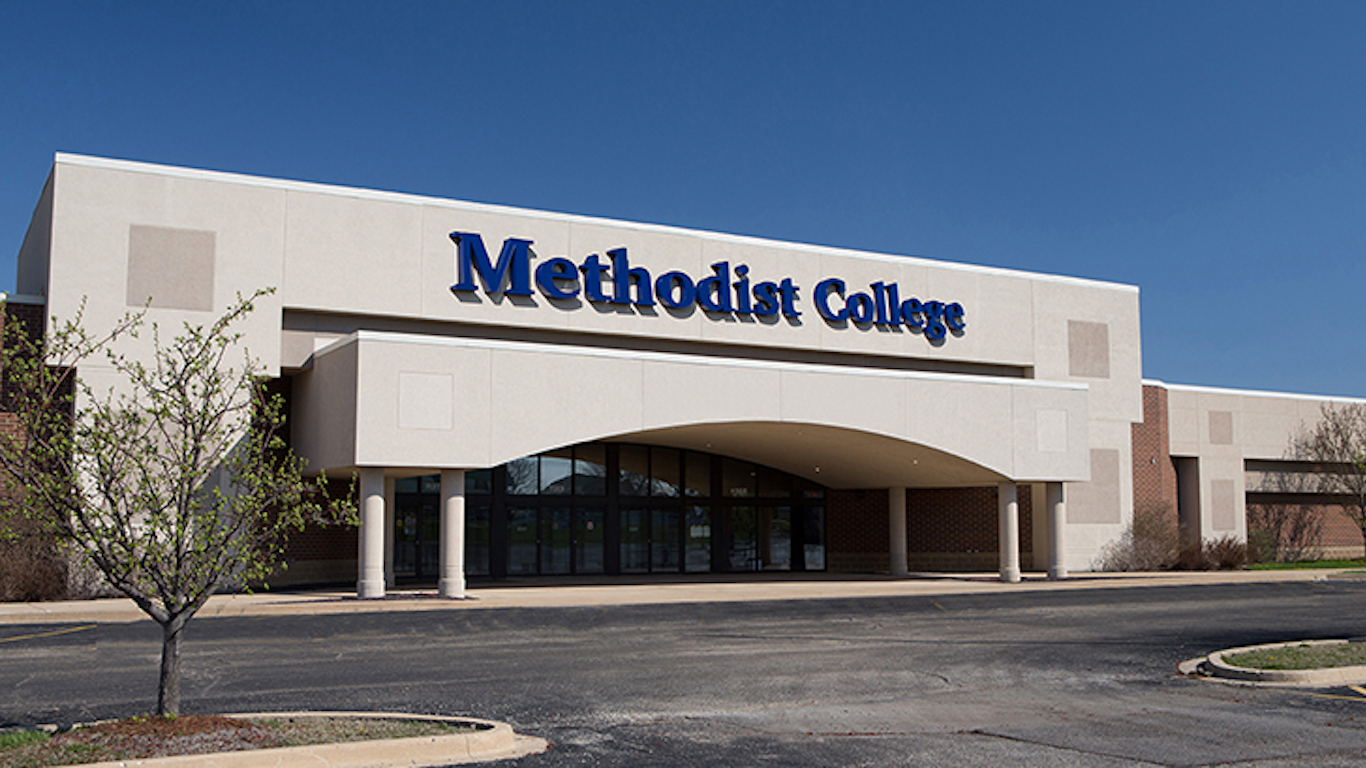
18. Methodist College, Illinois
> 5-year tuition increase: 62.1%
> Tuition and fees: $20,710
> Annual net price: $30,794
> Total student population: 708
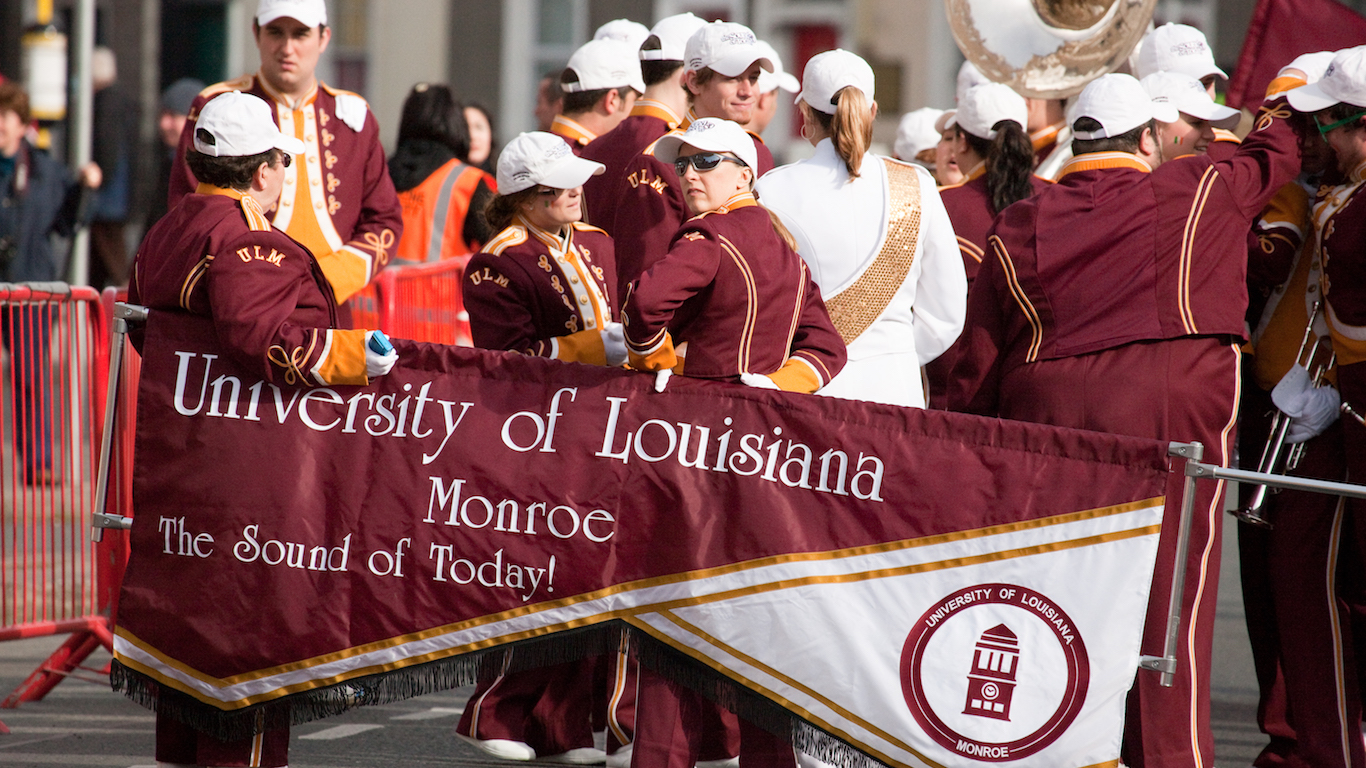
17. University of Louisiana at Monroe, Louisiana
> 5-year tuition increase: 62.4%
> Tuition and fees: $8,284
> Annual net price: $9,145
> Total student population: 8,344
[in-text-ad-2]
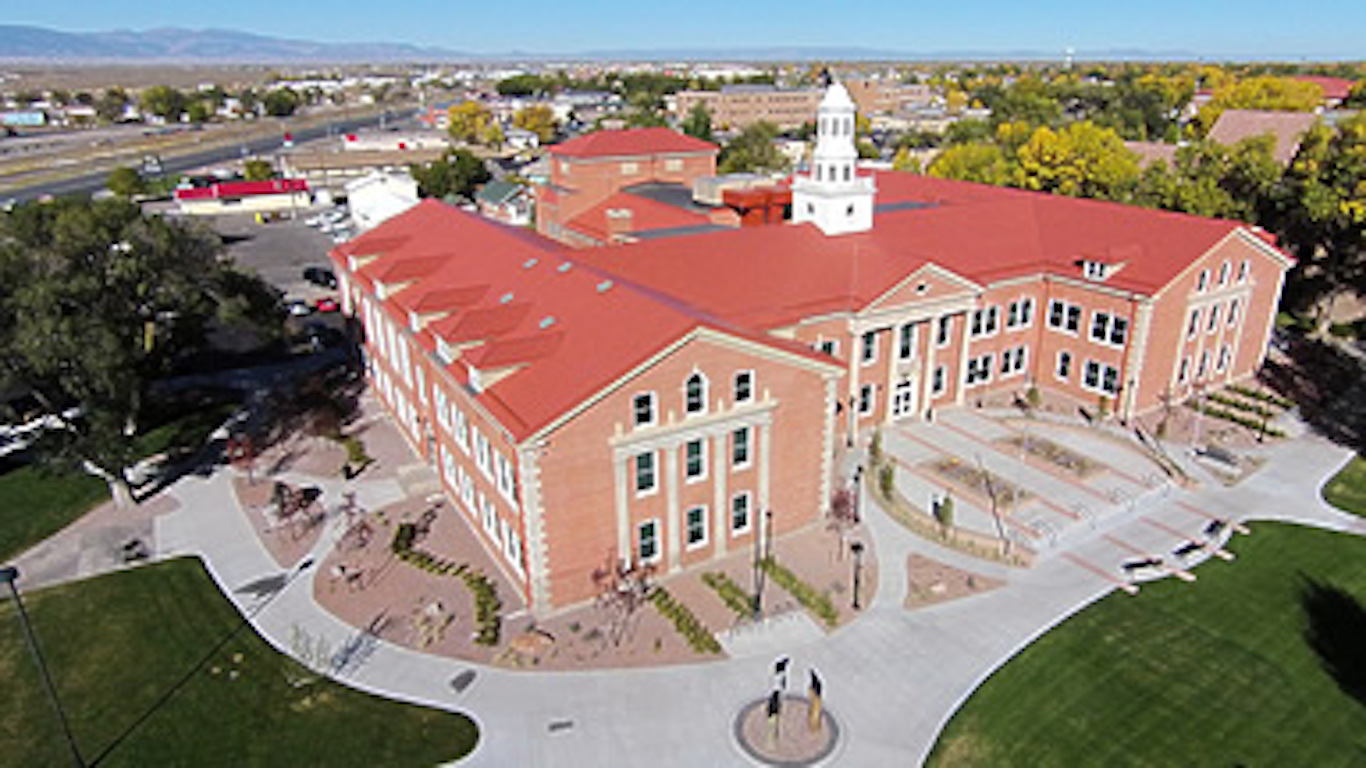
16. Adams State University, Colorado
> 5-year tuition increase: 62.7%
> Tuition and fees: $9,153
> Annual net price: $13,888
> Total student population: 2,685
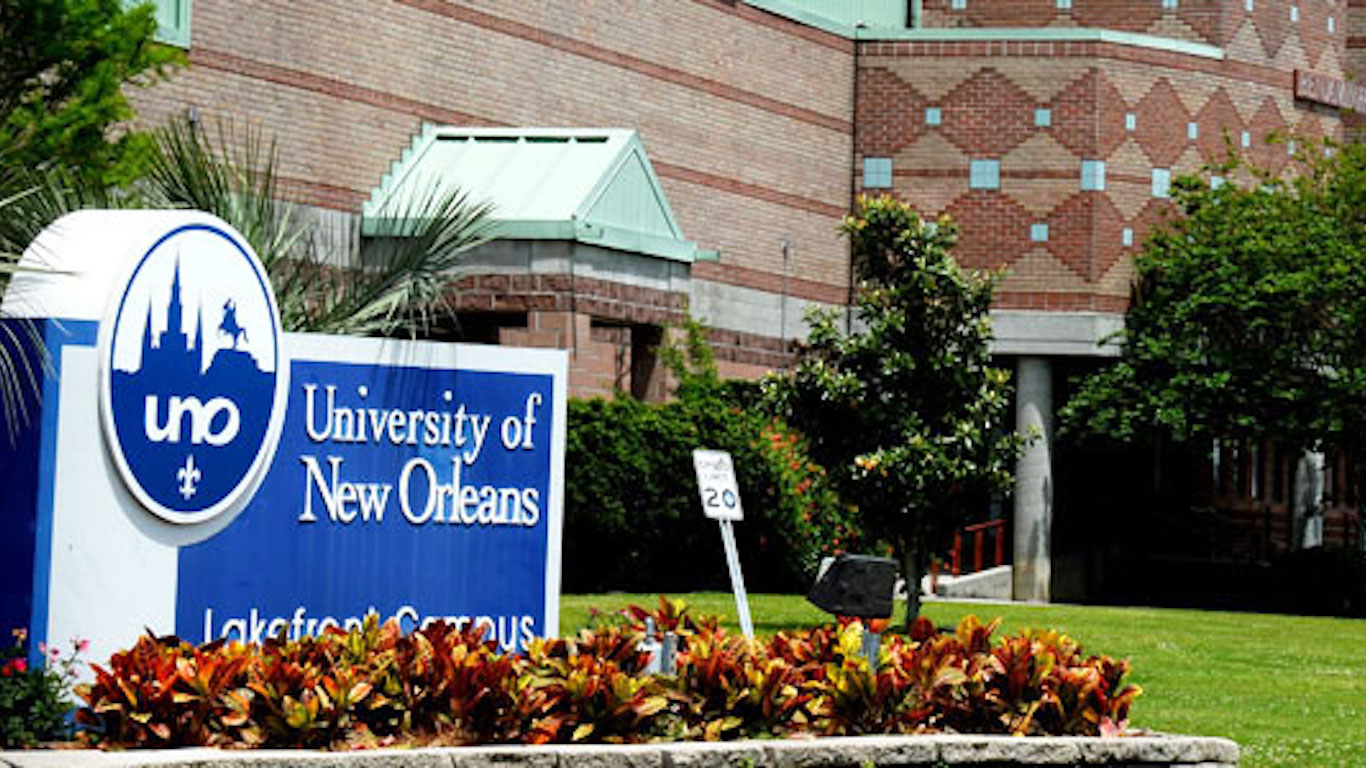
15. University of New Orleans, Louisiana
> 5-year tuition increase: 62.7%
> Tuition and fees: $8,484
> Annual net price: $9,428
> Total student population: 8,131
[in-text-ad]
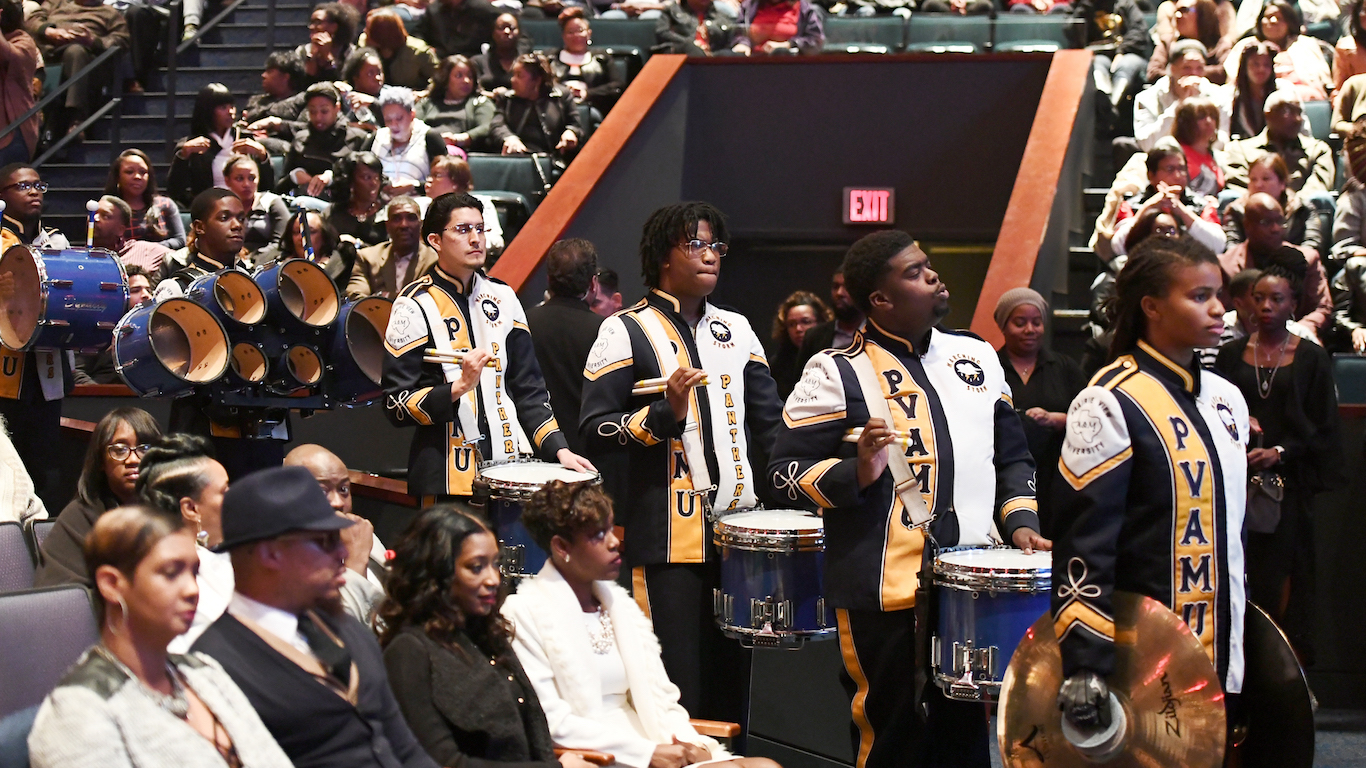
14. Prairie View A&M University, Texas
> 5-year tuition increase: 64.0%
> Tuition and fees: $10,059
> Annual net price: $9,813
> Total student population: 7,650
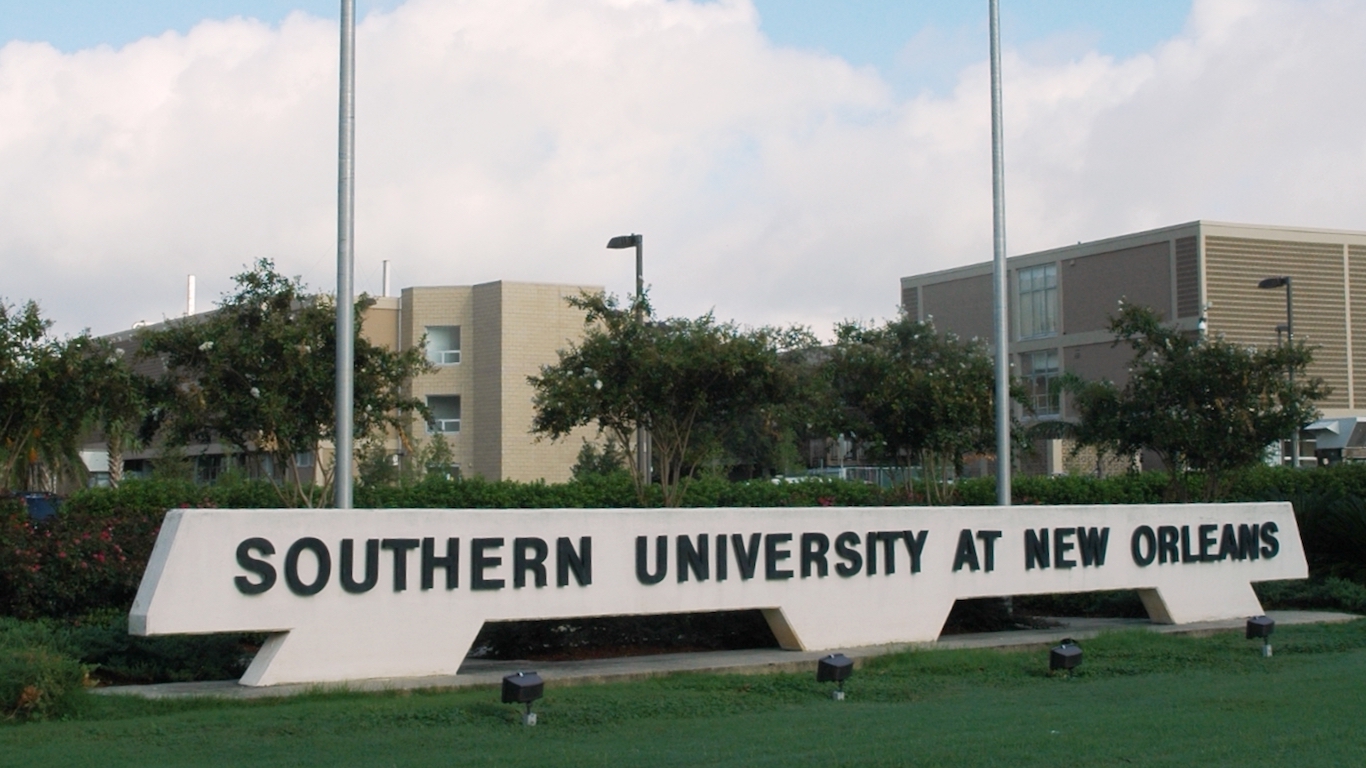
13. Southern University at New Orleans, Louisiana
> 5-year tuition increase: 64.4%
> Tuition and fees: $6,421
> Annual net price: $5,909
> Total student population: 2,736

12. McNeese State University, Louisiana
> 5-year tuition increase: 66.8%
> Tuition and fees: $7,310
> Annual net price: $9,978
> Total student population: 8,361
[in-text-ad-2]

11. Western State Colorado University, Colorado
> 5-year tuition increase: 68.0%
> Tuition and fees: $9,193
> Annual net price: $15,780
> Total student population: 3,268
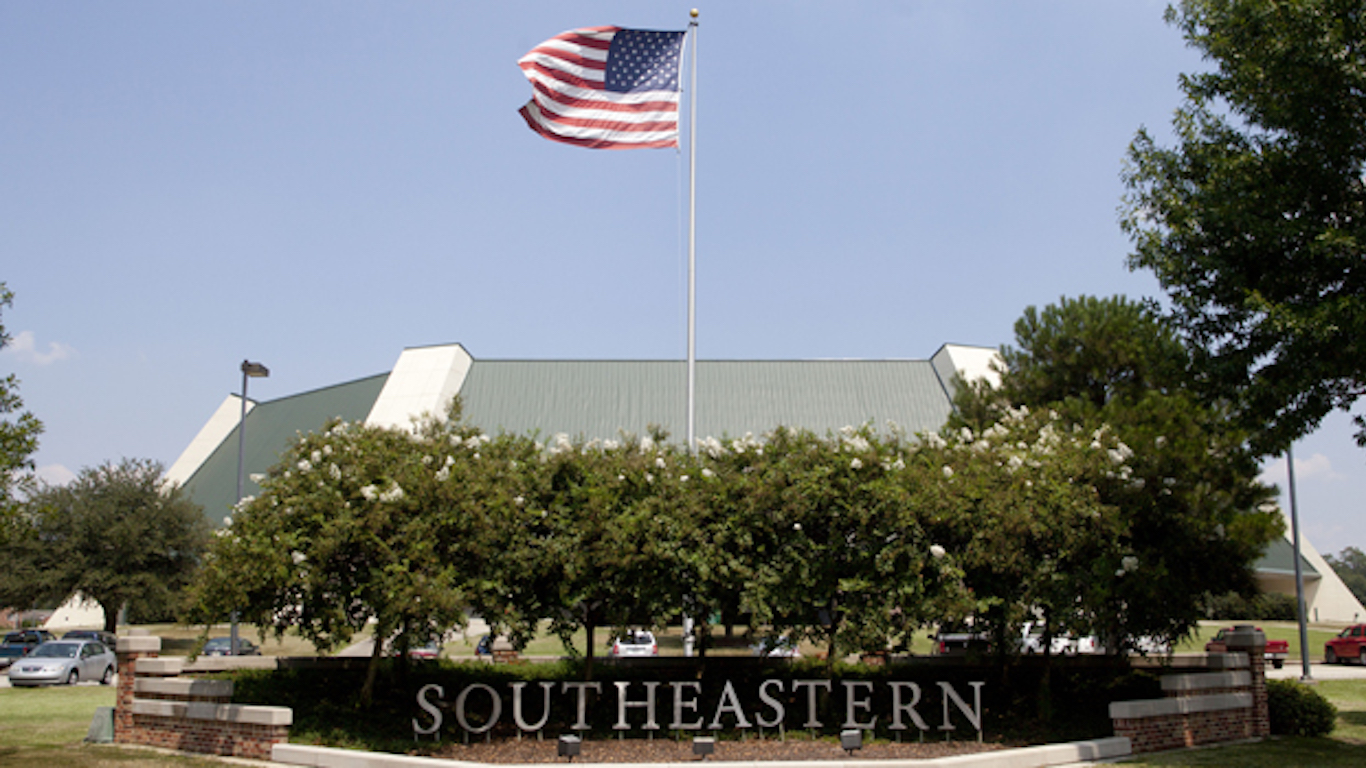
10. Southeastern Louisiana University, Louisiana
> 5-year tuition increase: 68.8%
> Tuition and fees: $7,773
> Annual net price: $10,850
> Total student population: 16,501
[in-text-ad]
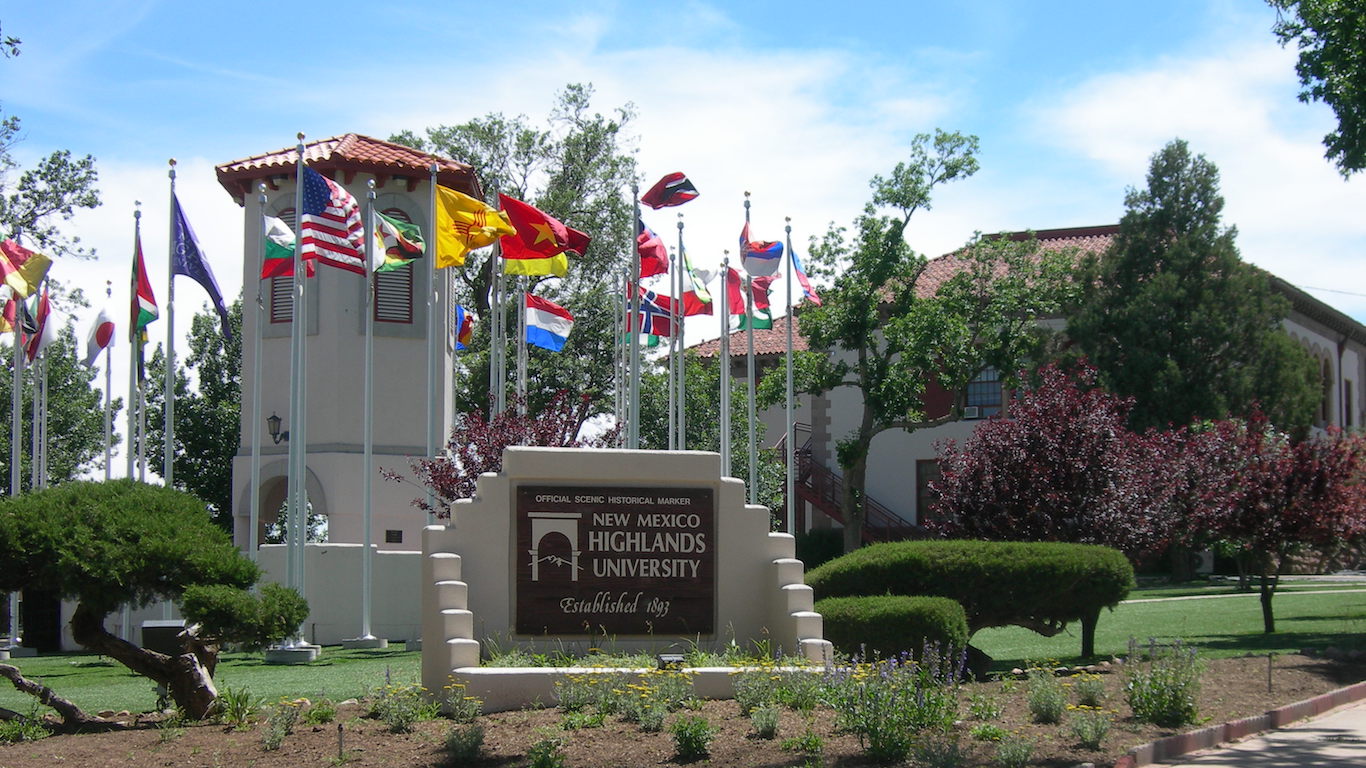
9. New Mexico Highlands University, New Mexico
> 5-year tuition increase: 69.0%
> Tuition and fees: $5,550
> Annual net price: $9,783
> Total student population: 2,715

8. Louisiana State University and Agricultural & Mechanical College, Louisiana
> 5-year tuition increase: 70.2%
> Tuition and fees: $10,814
> Annual net price: $15,095
> Total student population: 27,720
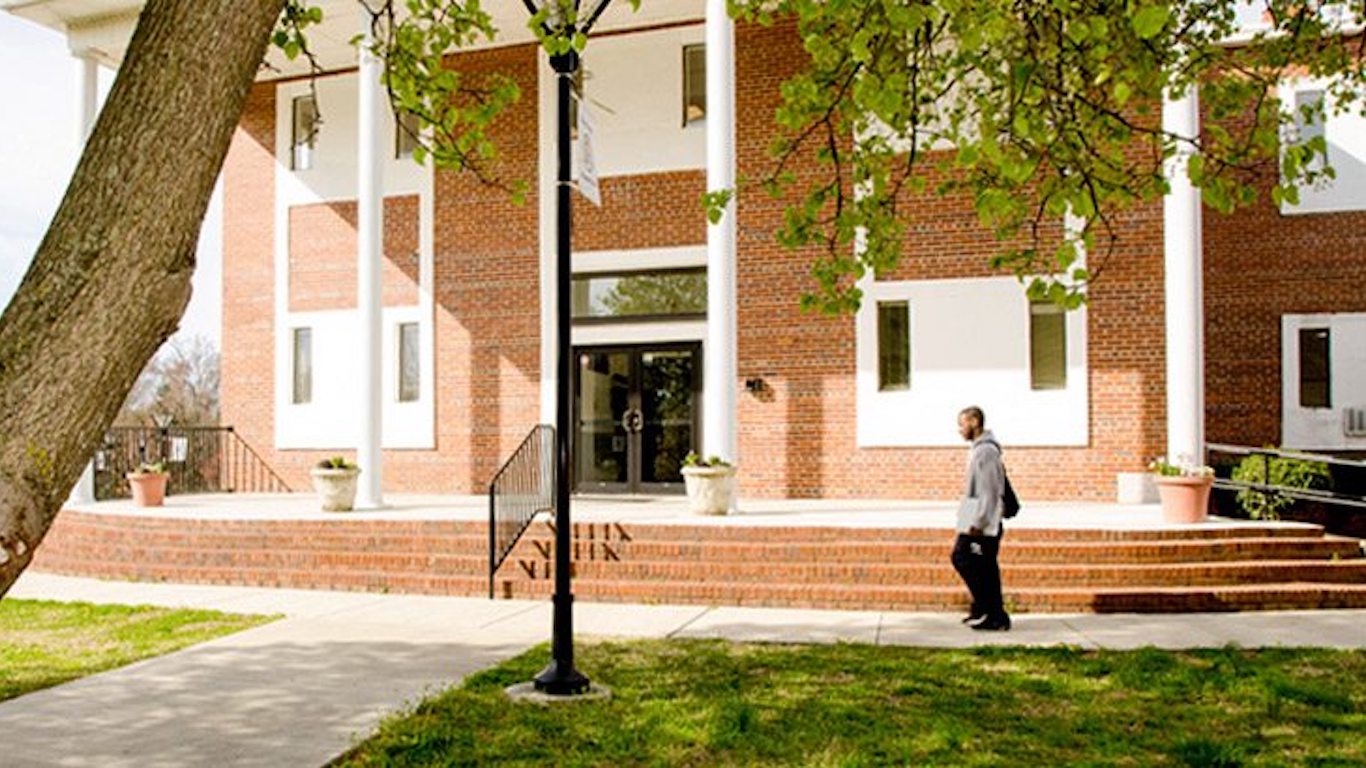
7. Clinton College, South Carolina
> 5-year tuition increase: 74.1%
> Tuition and fees: $7,894
> Annual net price: $10,431
> Total student population: 174
[in-text-ad-2]
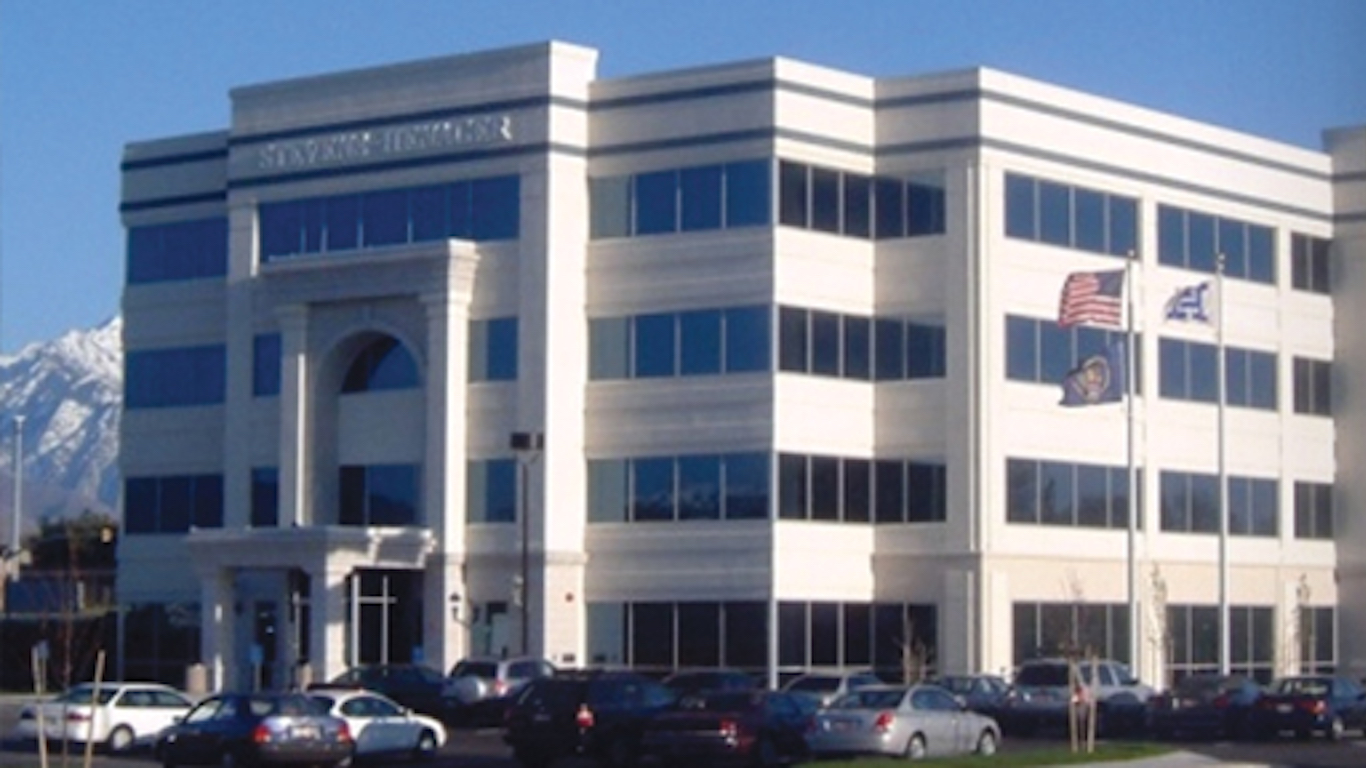
6. Independence University, Utah
> 5-year tuition increase: 75.7%
> Tuition and fees: $16,968
> Annual net price: $26,240
> Total student population: 9,880
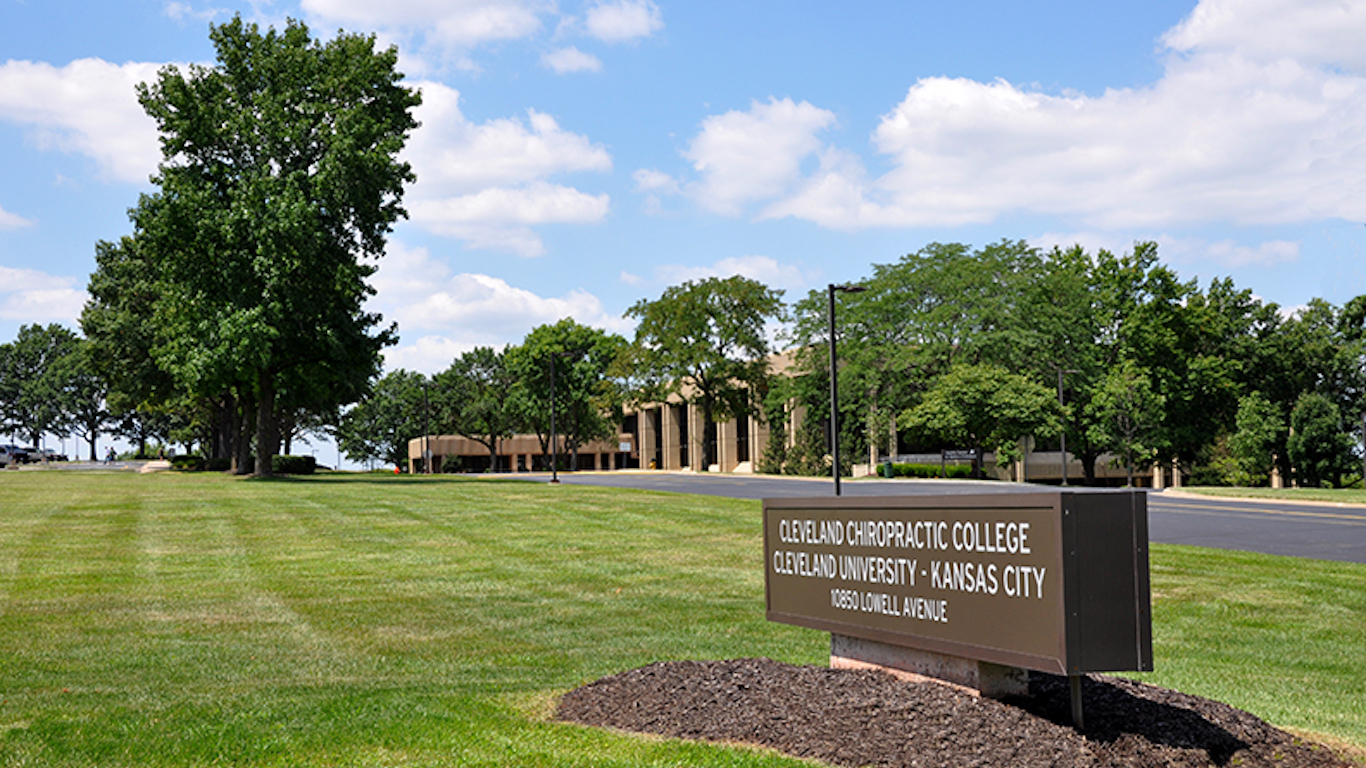
5. Cleveland University-Kansas City, Kansas
> 5-year tuition increase: 82.7%
> Tuition and fees: $14,840
> Annual net price: $37,161
> Total student population: 88
[in-text-ad]

4. Southern University and A&M College, Louisiana
> 5-year tuition increase: 83.9%
> Tuition and fees: $9,332
> Annual net price: $12,455
> Total student population: 11,717

3. Navajo Technical University, New Mexico
> 5-year tuition increase: 92.0%
> Tuition and fees: $4,070
> Annual net price: $4,933
> Total student population: 2,284
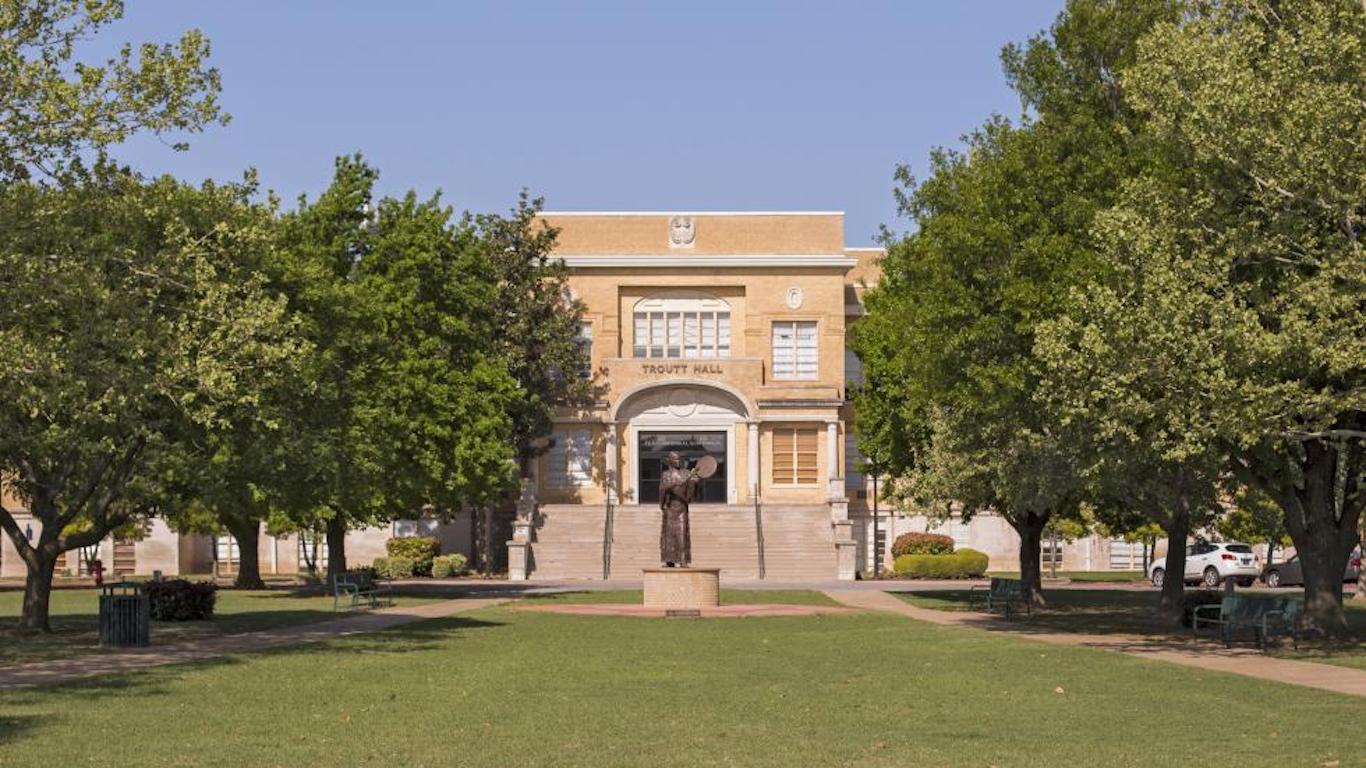
2. University of Science and Arts of Oklahoma, Oklahoma
> 5-year tuition increase: 92.3%
> Tuition and fees: $7,200
> Annual net price: $8,221
> Total student population: 968
[in-text-ad-2]
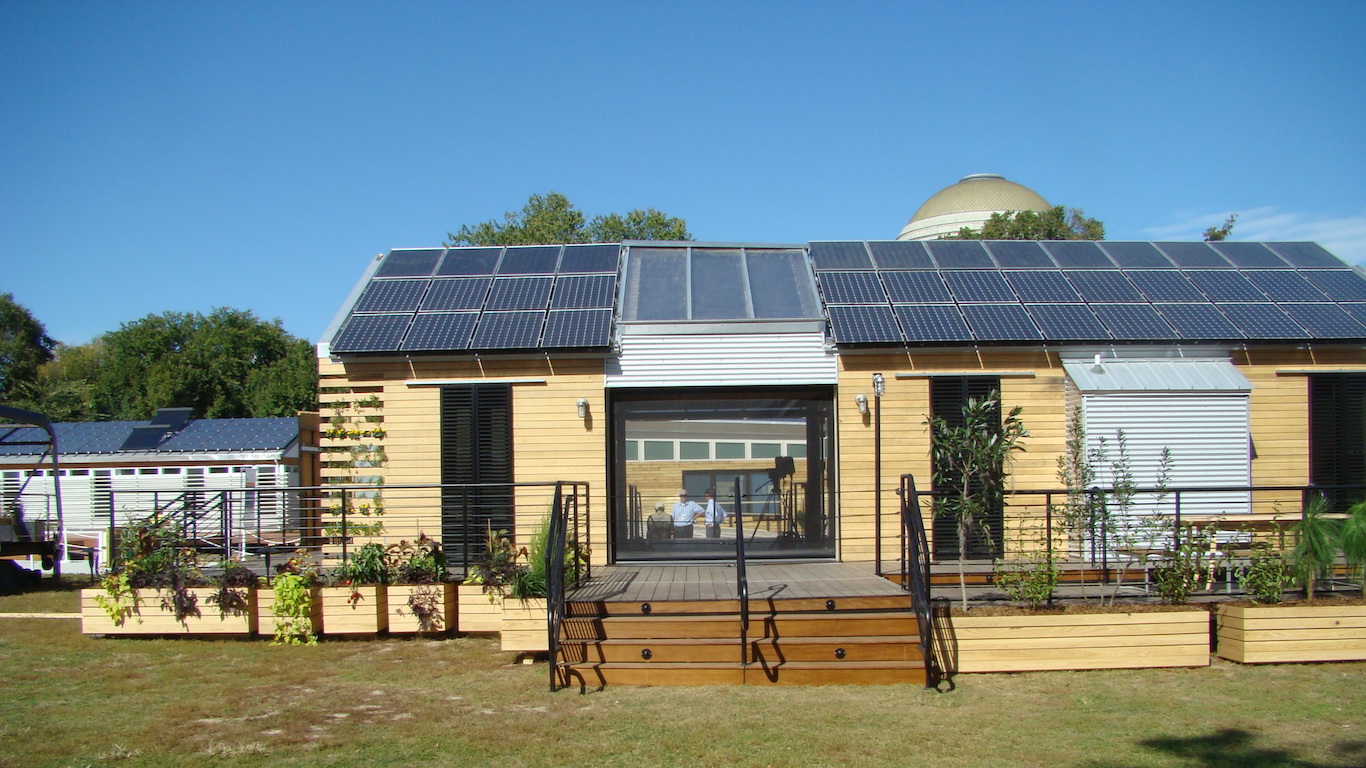
1. University of Louisiana at Lafayette, Louisiana
> 5-year tuition increase: 94.3%
> Tuition and fees: $9,450
> Annual net price: $10,200
> Total student population: 17,975
Detailed Findings
Many universities have claimed to freeze their tuition, yet they have increased student fees for services typically covered by tuition. In a December 2017 interview with 24/7 Wall St., Richard Reeves, branch chief for the postsecondary branch of NCES, noted “Mandatory fees have grown.
About 20 years ago the Integrated Postsecondary Education Data System just collected [data on] tuition and room and board, and now we have a whole host of acknowledged student expenditures that are packaged to the student.” While financial aid covers mandatory fees, a number of elective fees are not covered by grants or scholarships. Common fees charged to students include athletic events, student activities, and fees related to specific courses.
A lack of state funding also contributes to higher tuitions. In recent years, states such as Wisconsin, Louisiana, and Arizona have passed wide-reaching tax cuts that reduced the amount of funding available for higher education institutions. Louisiana has cut its budget for higher education in almost every year over the past decade and now spends $700 million less annually on its public schools than it did in 2008.
With lower funding, the cost of higher education is passed on to the student. Of the 35 public schools on this list, 10 are located in Louisiana. Another three are located in New Mexico, which cut funding for public higher education by more than $500 per student from 2016 to 2017. Many states reducing funding for higher education were those hit hardest by the Great Recession.
The increasing access of a college education to low-income students may also be increasing tuition costs. “We want more people to go to college, and we already have near saturation in the wealthiest categories,” Reeves said. The question becomes, “As we increase access to lower income people, how do we pay for that?” Tuition for low-income students is often subsidized by institutional grants and other tuition discounts, which are often funded by the tuition paid by other students. As the cost burden for higher education is spread among fewer students, the average cost of tuition increases.
A school with a large percentage increase in tuition may still be relatively affordable to attend. Haskell Indian Nations University, for example, does not charge tuition. The university is funded by the Bureau of Indian Education and only charges students a number of fees each semester that cover library, activities, the Little Nations Academic Center, internet usage, athletic events, and the fitness center. While that fee has more than doubled in the past five years, it remains at just $240 a semester.
At other schools, generous financial aid and scholarships may substantially reduce the actual cost of attendance. While nationwide the cost of tuition increased 13.5% over the past five years, the actual cost of attendance — the cost of tuition minus any federal, state, local, or institutional funding — rose a much lower 8.3%.
The discrepancy may be due to the increasing amount of financial aid that has become available to students in recent years. The average amount of federal, state, local, or institutional grant aid awarded to financial aid recipients in the United States rose by 12.8% over the past five years, from $6,838 in 2011-12 to $7,329 in 2016-17 — rising nearly as fast as tuition increased.
There are several schools where, despite a substantial increase in tuition, the actual cost of attendance declined. At Southern University at New Orleans, for example, the average net price of attendance for students who receive financial aid fell by 46.2% even as tuition increased by 64.4%.
Like in many schools where this was the case, the tuition hike was likely offset by an increase in available financial aid. The average amount of federal, state, local, and institutional grant money awarded to the average recipient at SUNO more than doubled, from $5,570 in 2011-12 to $19,755 in 2016-17. Other schools with rising tuition and falling cost of attendance include University of Alaska Southeast, Arlington Baptist College in Texas, and Saint Augustine College in Illinois.
Methodology
To determine the colleges with the largest tuition hikes, 24/7 Wall St. reviewed the latest data from the National Center for Education Statistics. Four-year universities were ranked based on the change in published in-state tuition from the 2011-12 school year to the 2016-17 school year. Only four-year schools with data on average net price and published in-state tuition were considered. Of the 7,357 schools included in the NCES database, 2,049 met these criteria. Published in-state tuition is the price of attendance for full-time, first-time undergraduate students for the full academic year, and includes the tuition institutions charge the students who meet the state or institution’s residency requirements, and the required fees charged to a large proportion of students for items not covered by tuition. The average net price is for full-time, first-time undergraduates paying the in-state or in-district tuition rate who received grant or scholarship aid from federal, state, local, or institutional sources, and is generated by subtracting the amount of aid from the total cost of attendance, which is the sum of published tuition, required fees, books and supplies, the average room and board, and other expenses. Yeshiva schools were not considered.
Find a Qualified Financial Advisor (Sponsor)
Finding a qualified financial advisor doesn’t have to be hard. SmartAsset’s free tool matches you with up to 3 fiduciary financial advisors in your area in 5 minutes. Each advisor has been vetted by SmartAsset and is held to a fiduciary standard to act in your best interests. If you’re ready to be matched with local advisors that can help you achieve your financial goals, get started now.
Thank you for reading! Have some feedback for us?
Contact the 24/7 Wall St. editorial team.
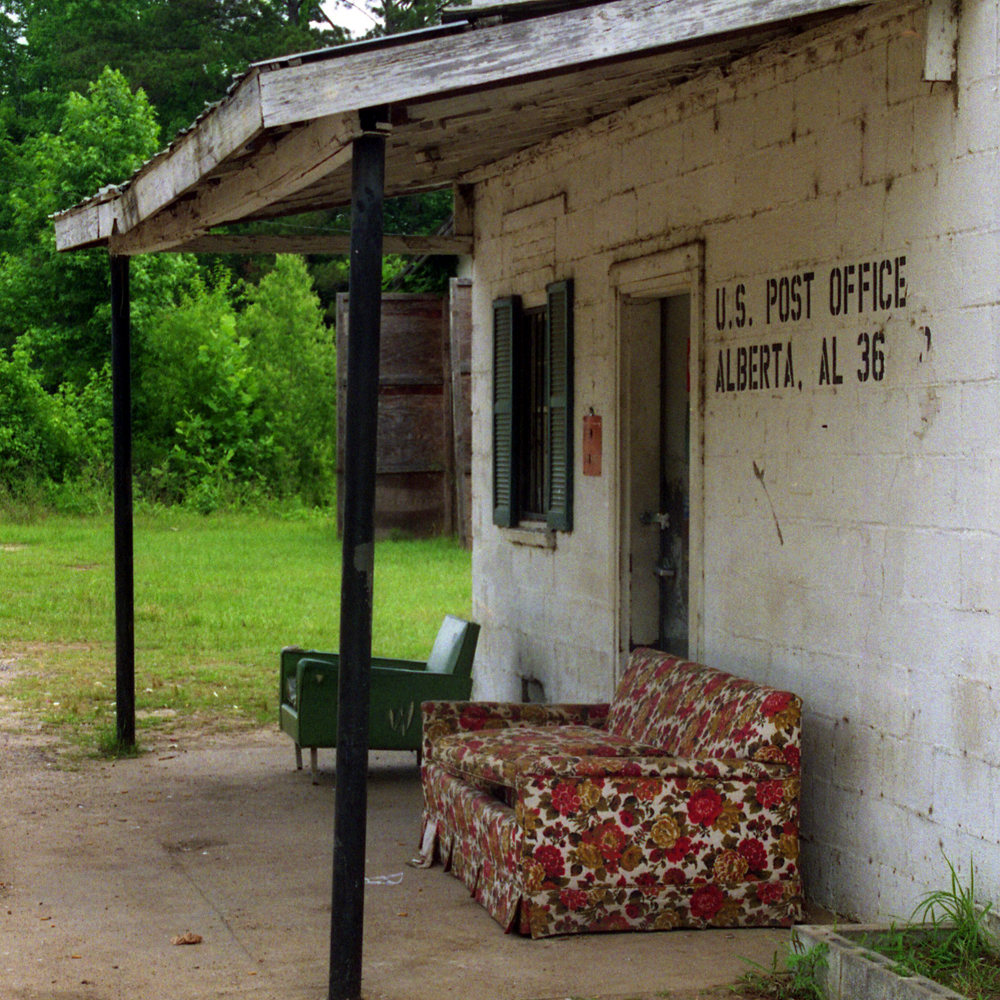 24/7 Wall St.
24/7 Wall St. 24/7 Wall St.
24/7 Wall St. 24/7 Wall St.
24/7 Wall St. 24/7 Wall St.
24/7 Wall St. 24/7 Wall St.
24/7 Wall St.

